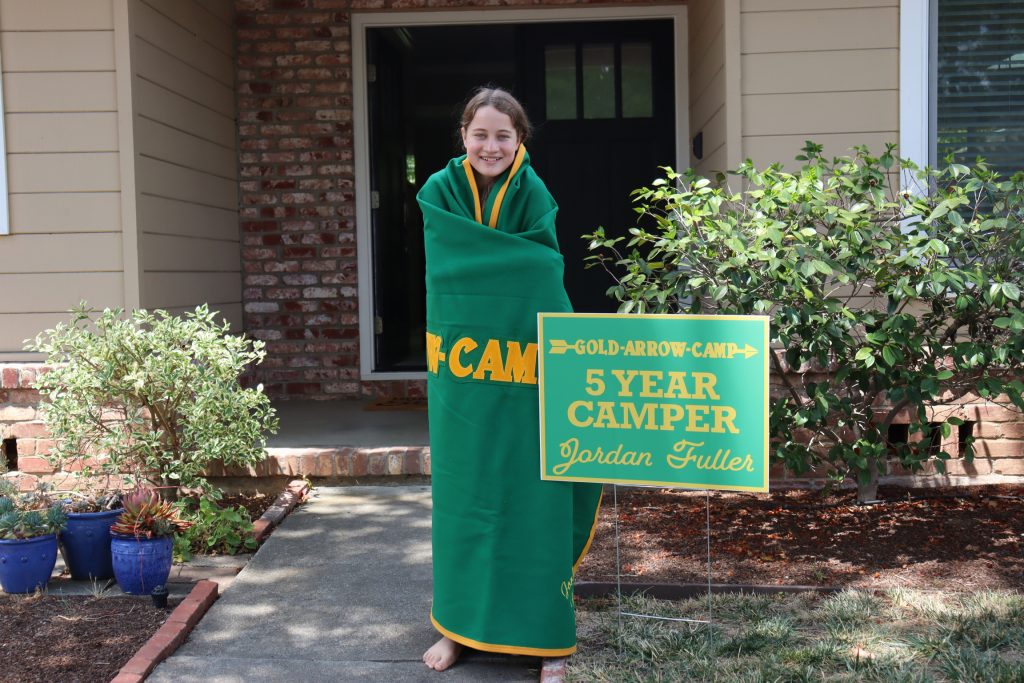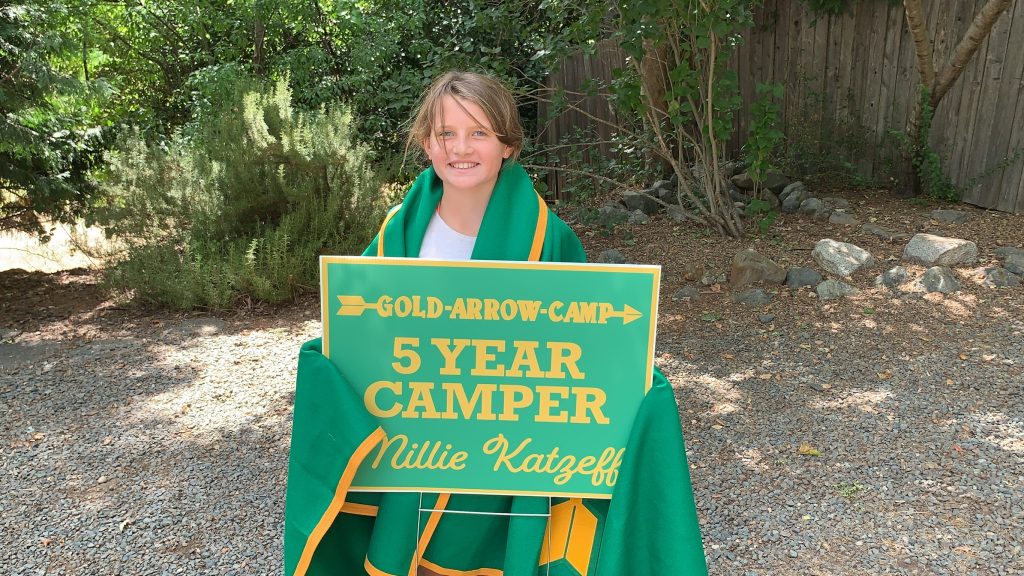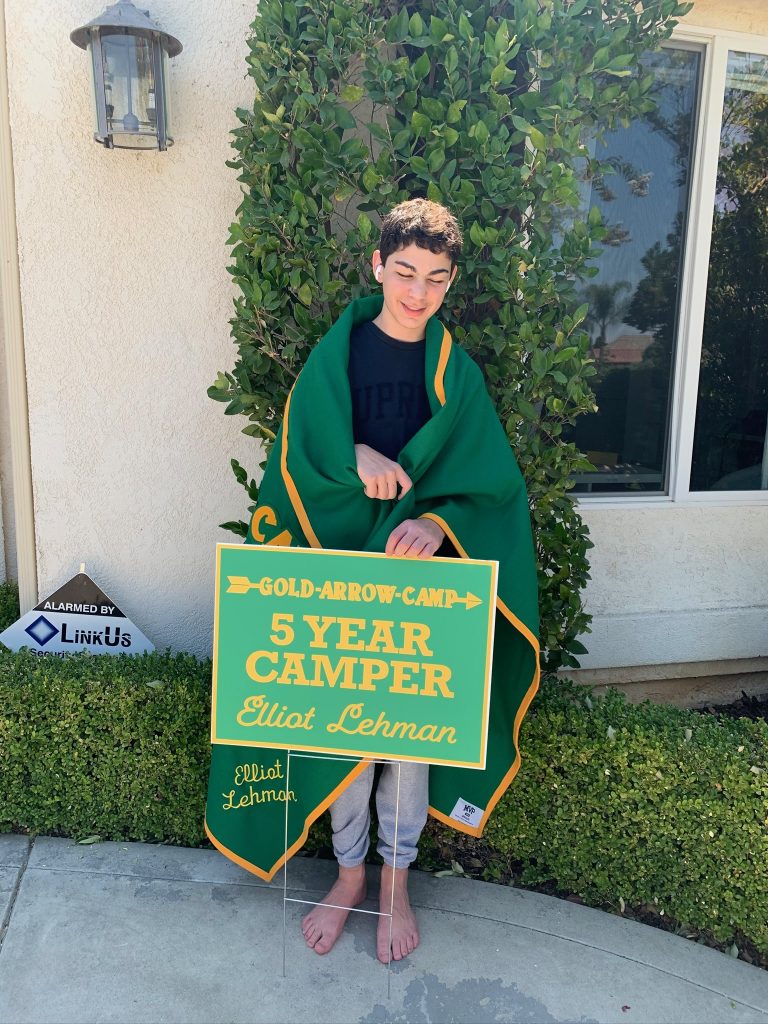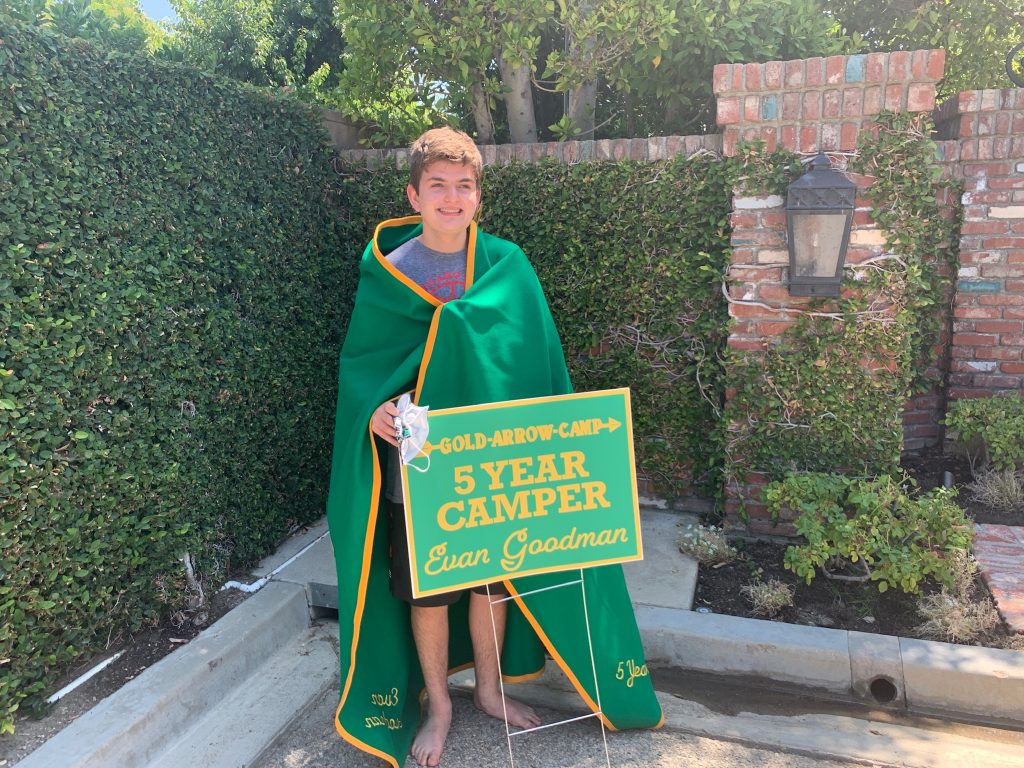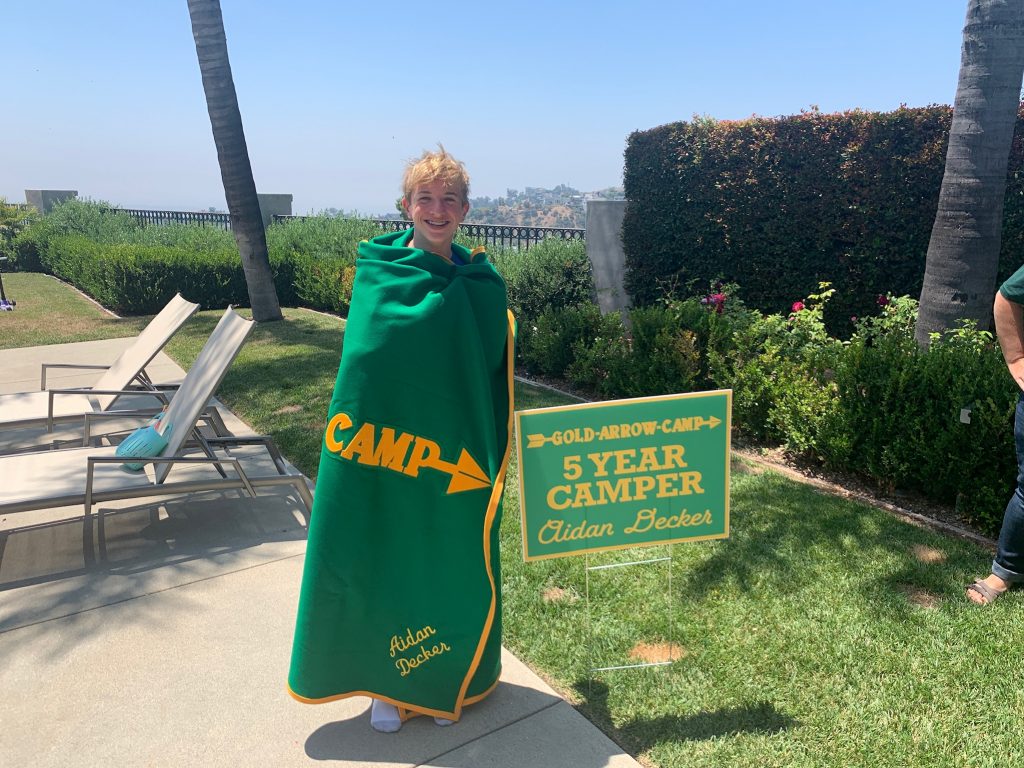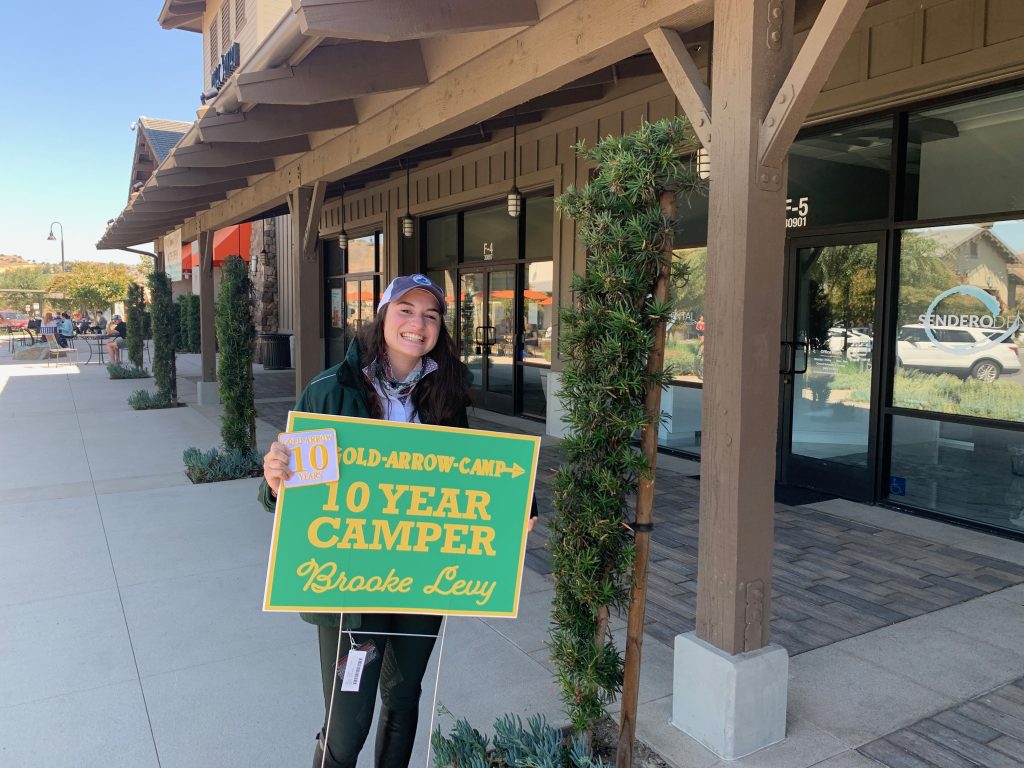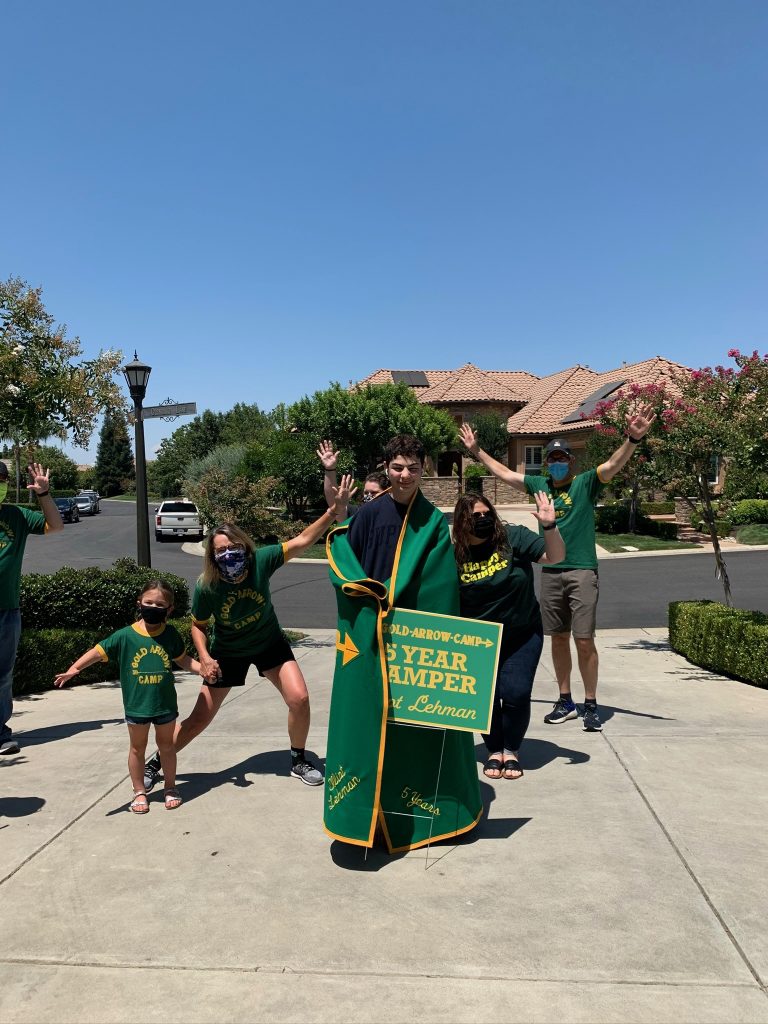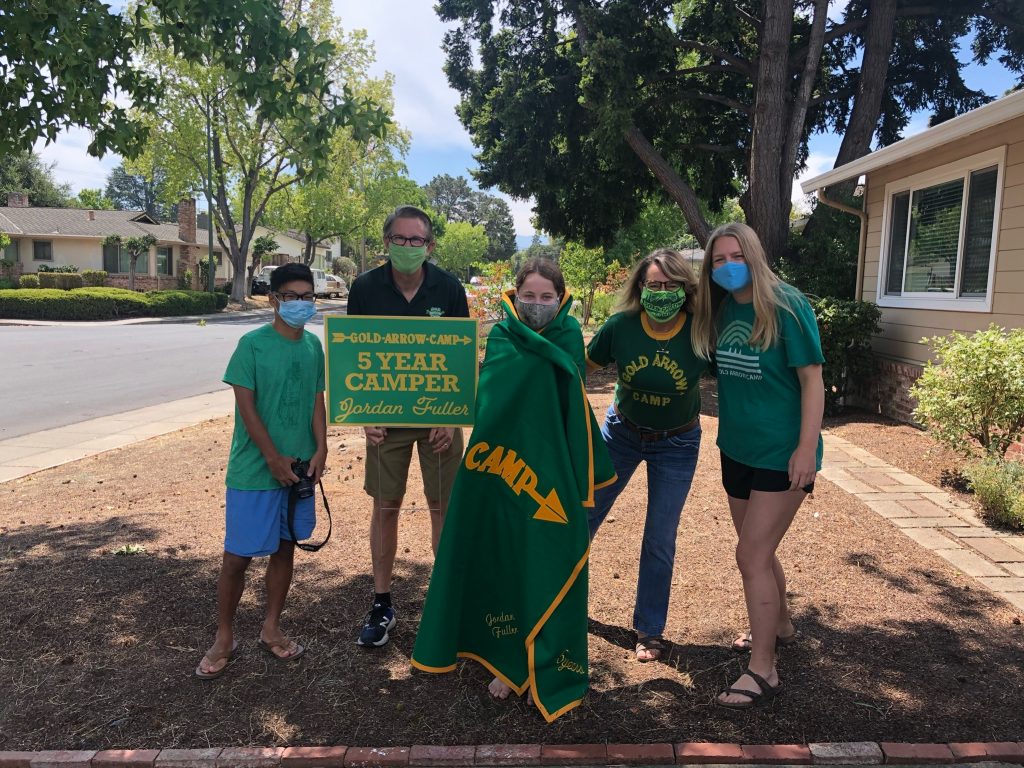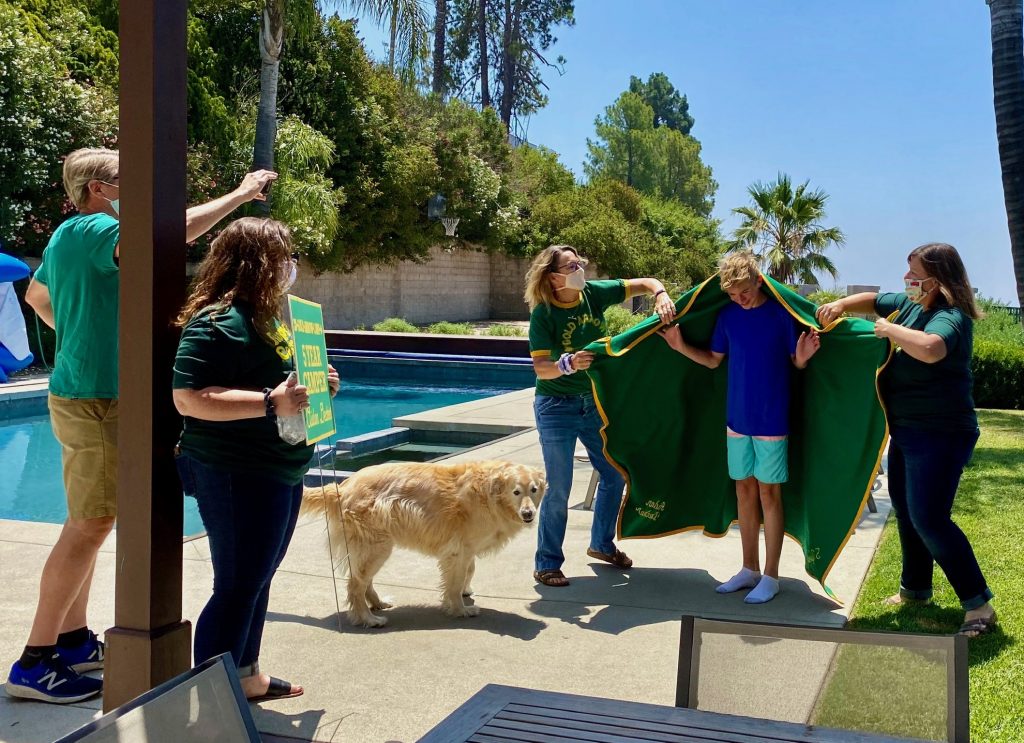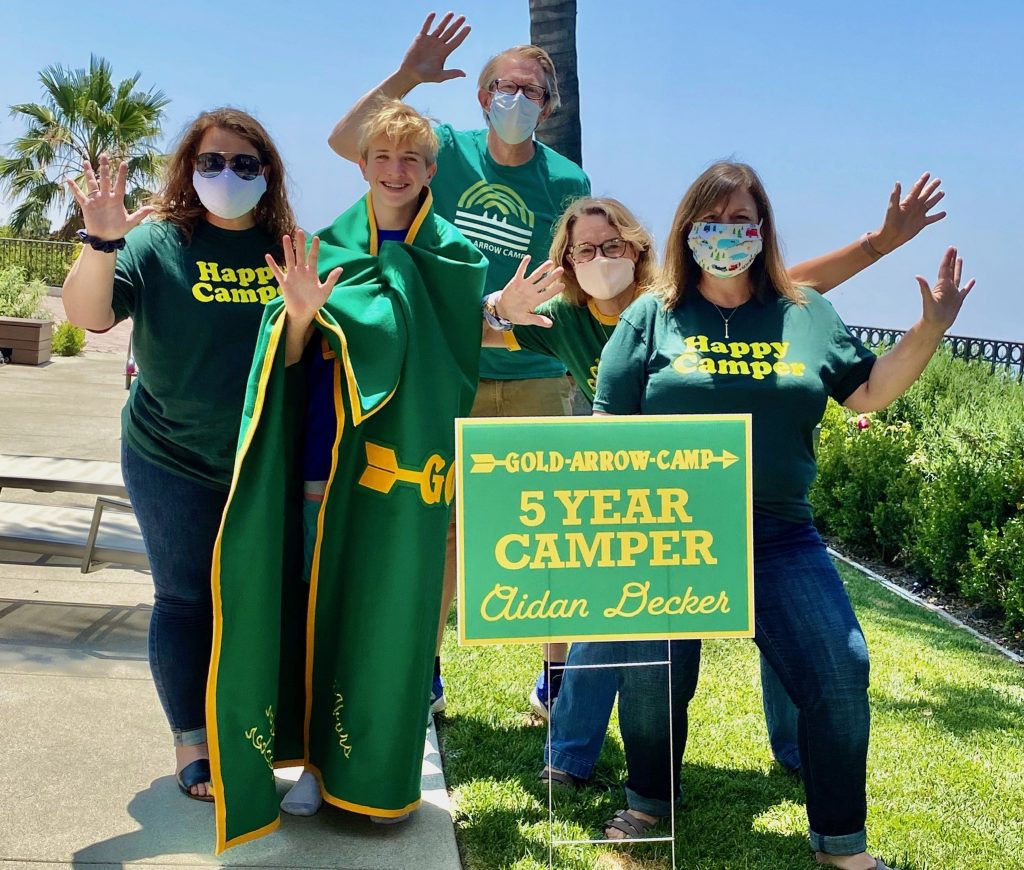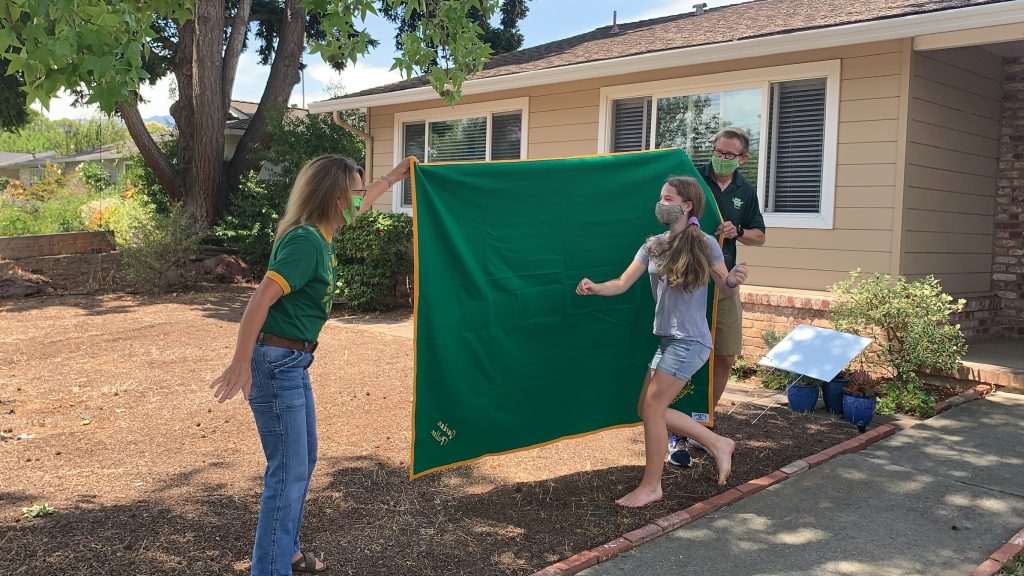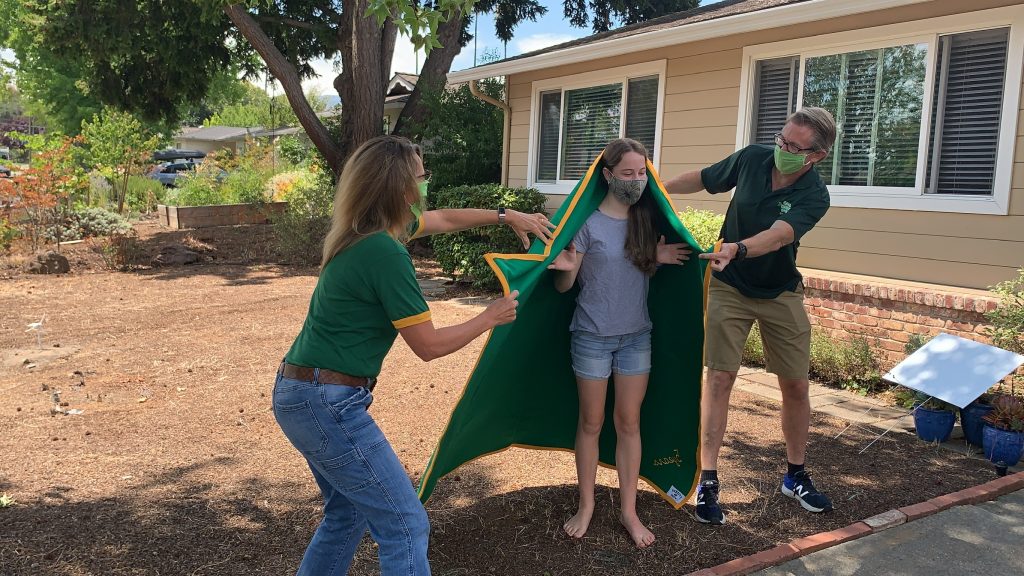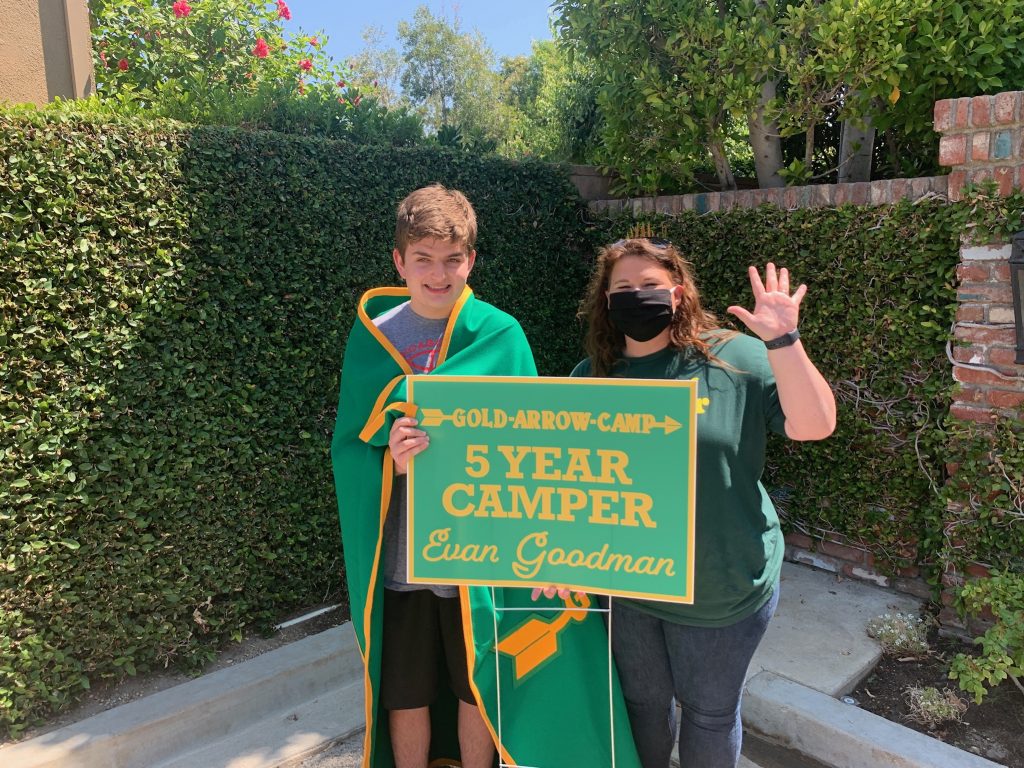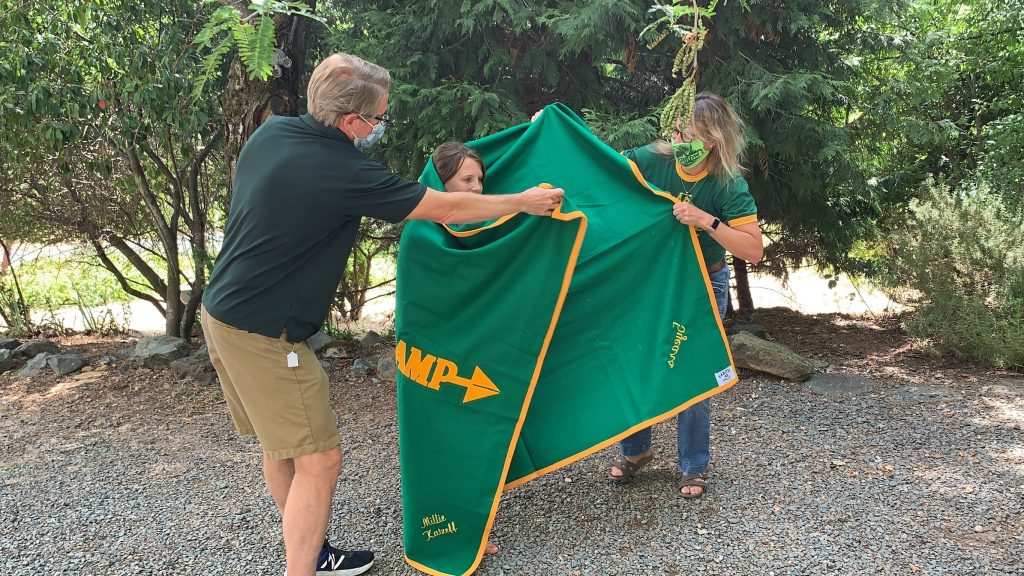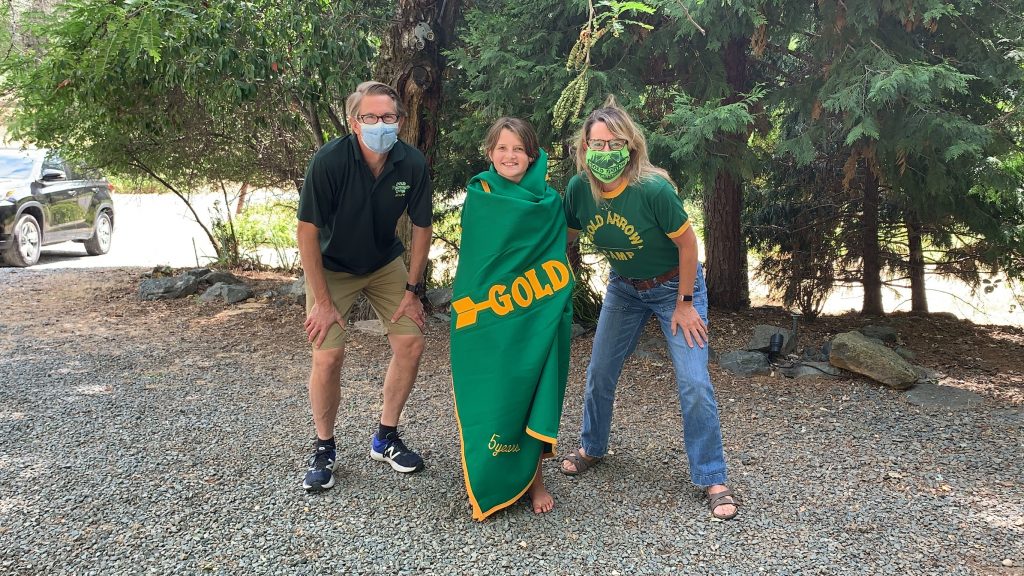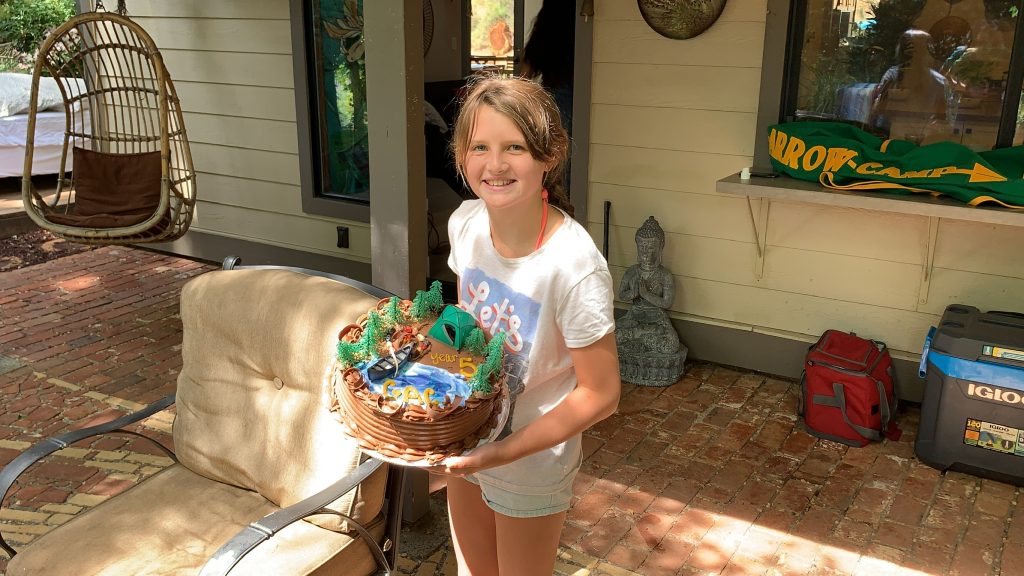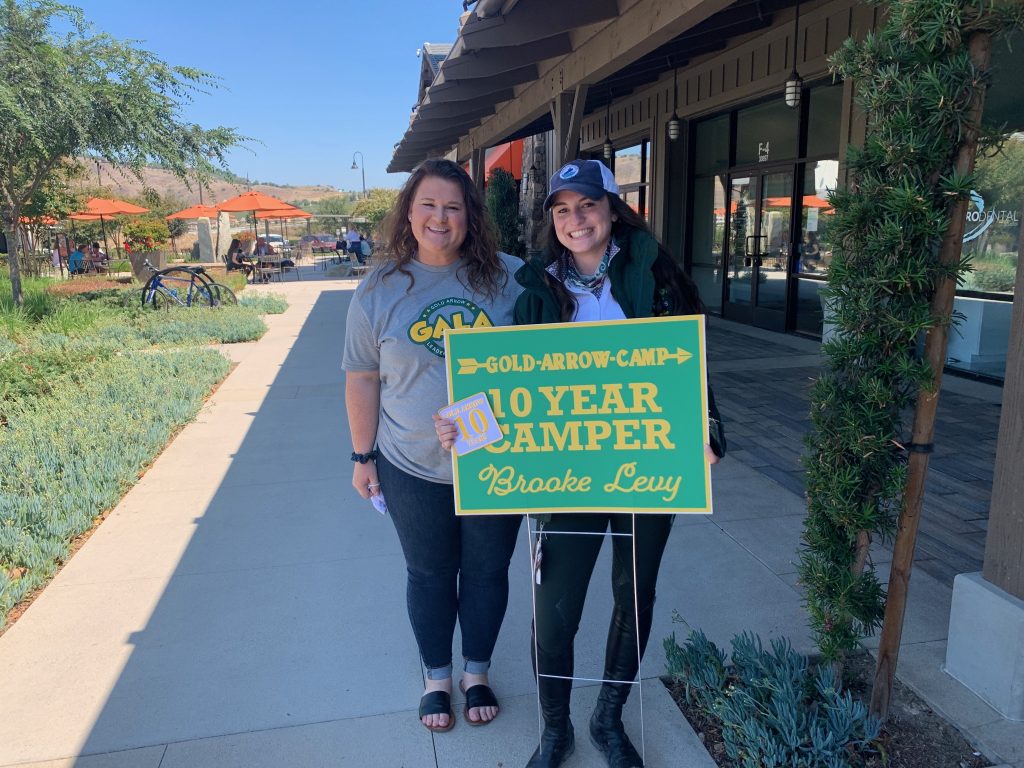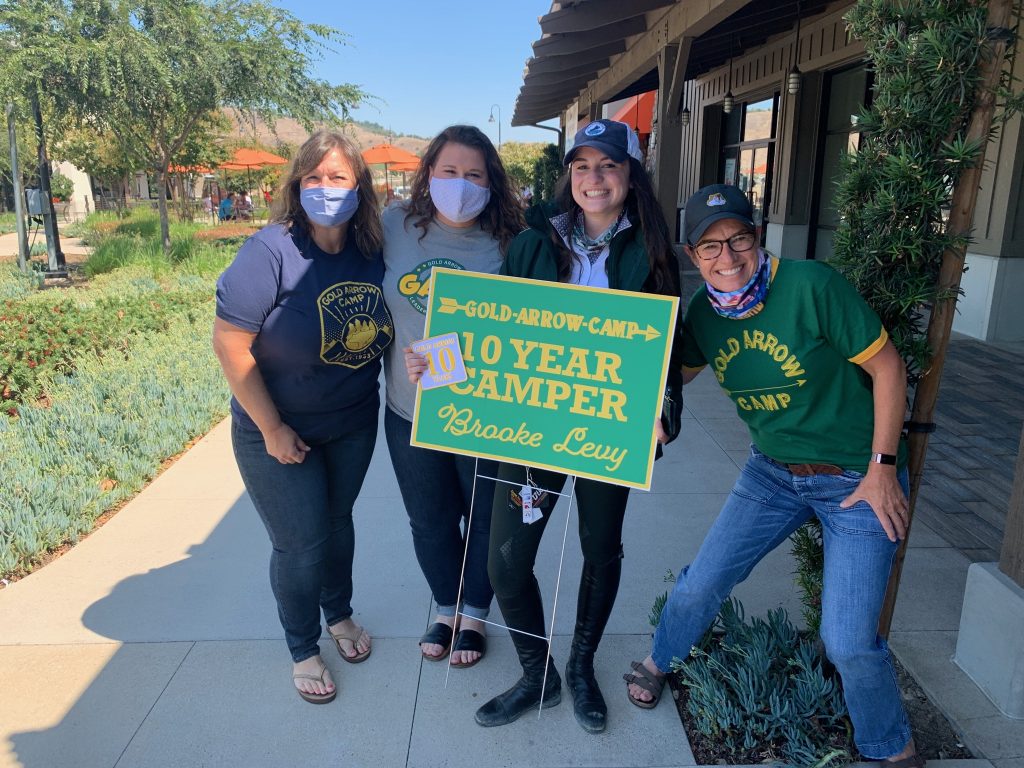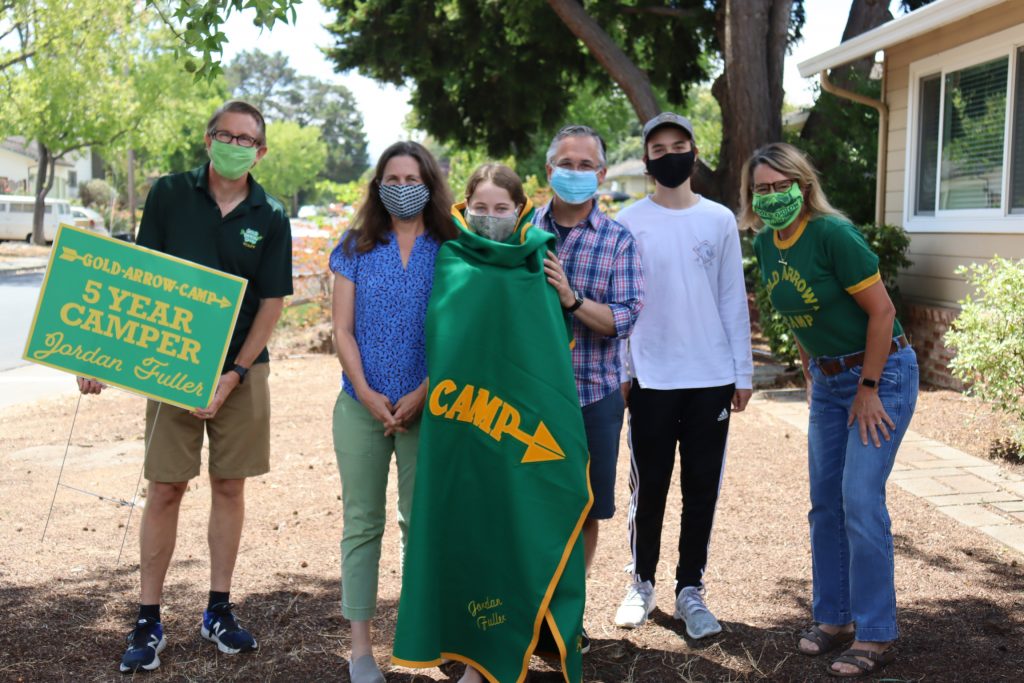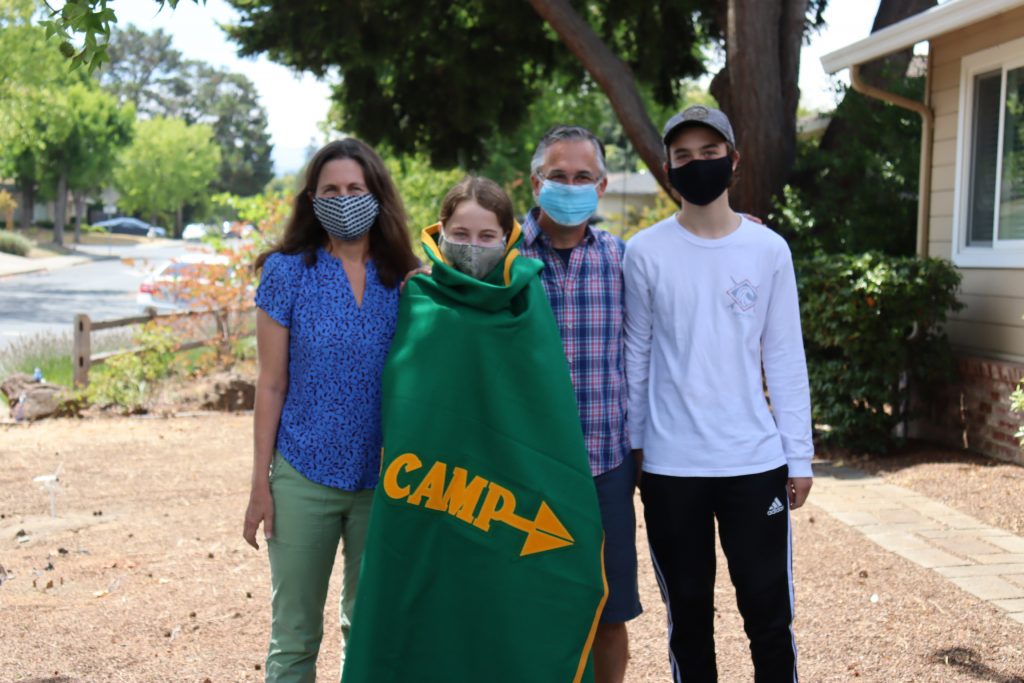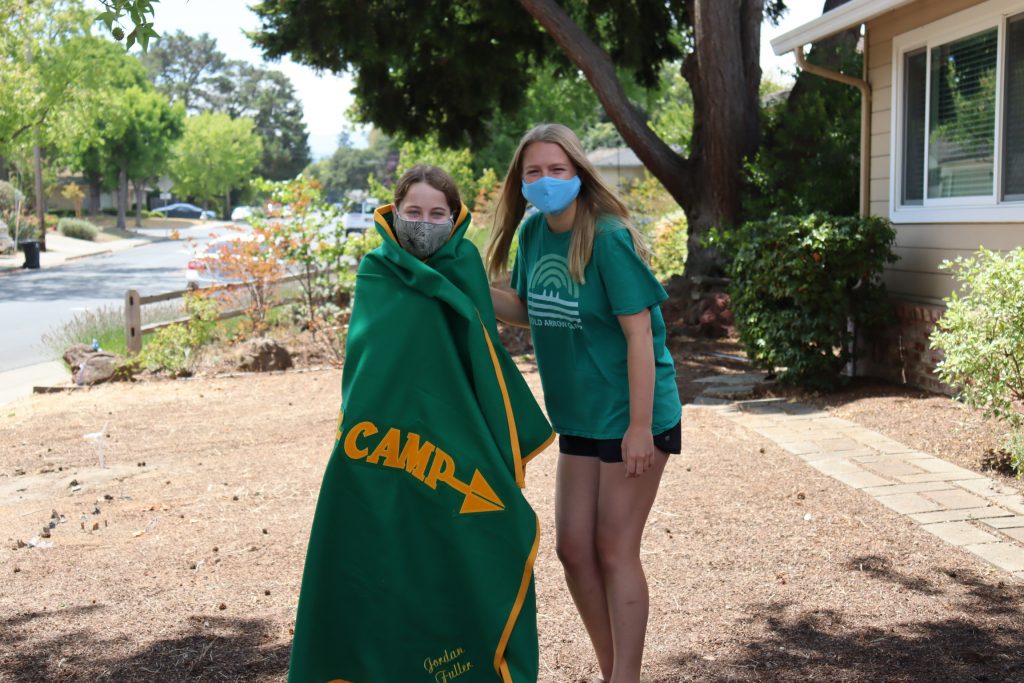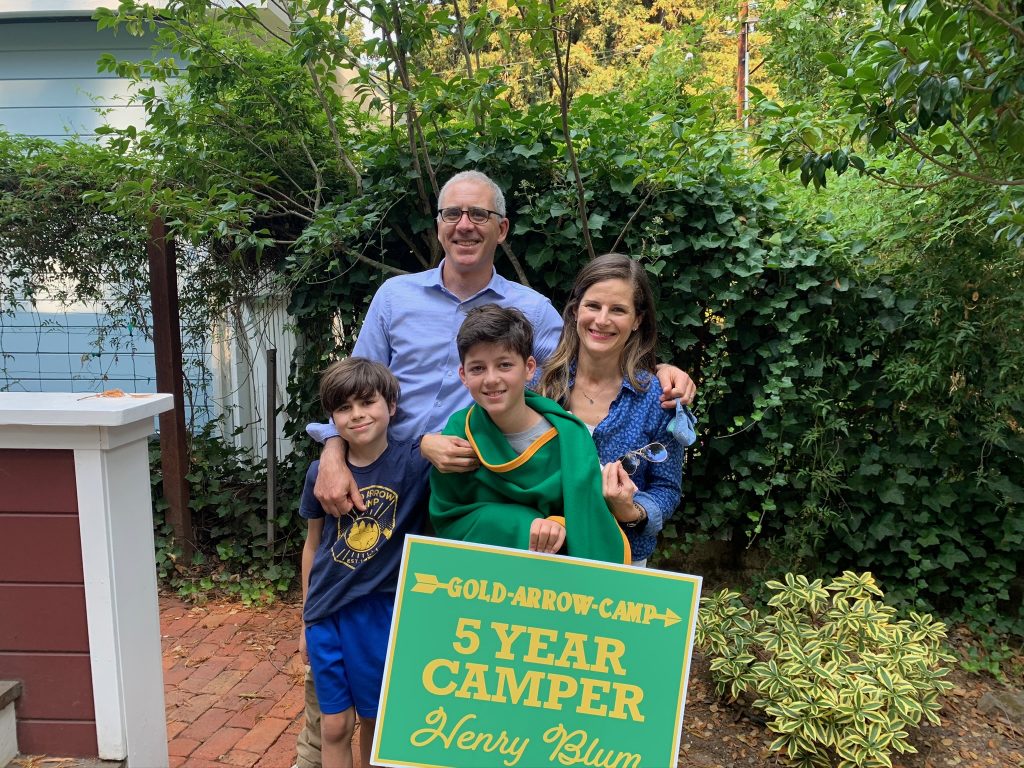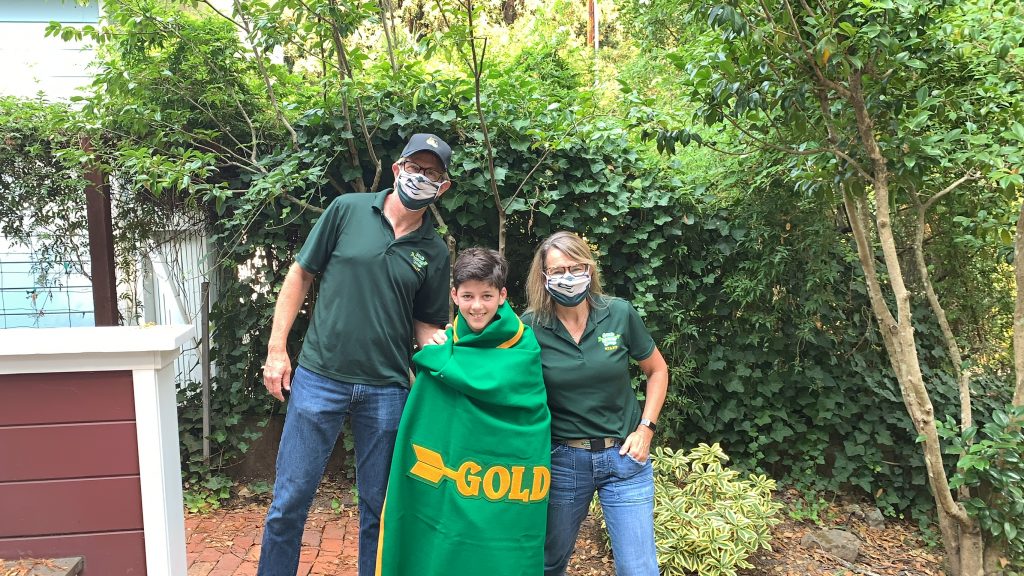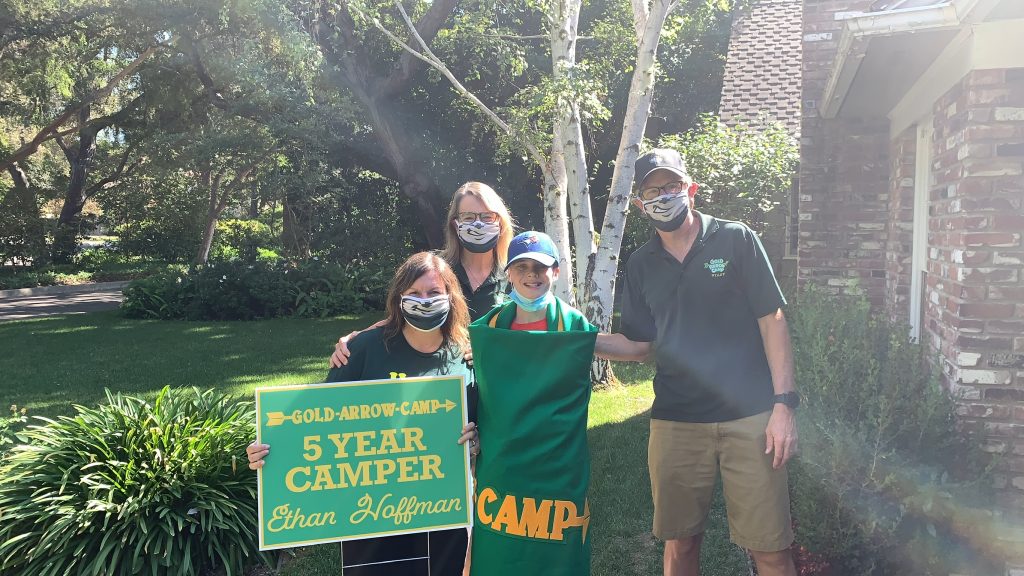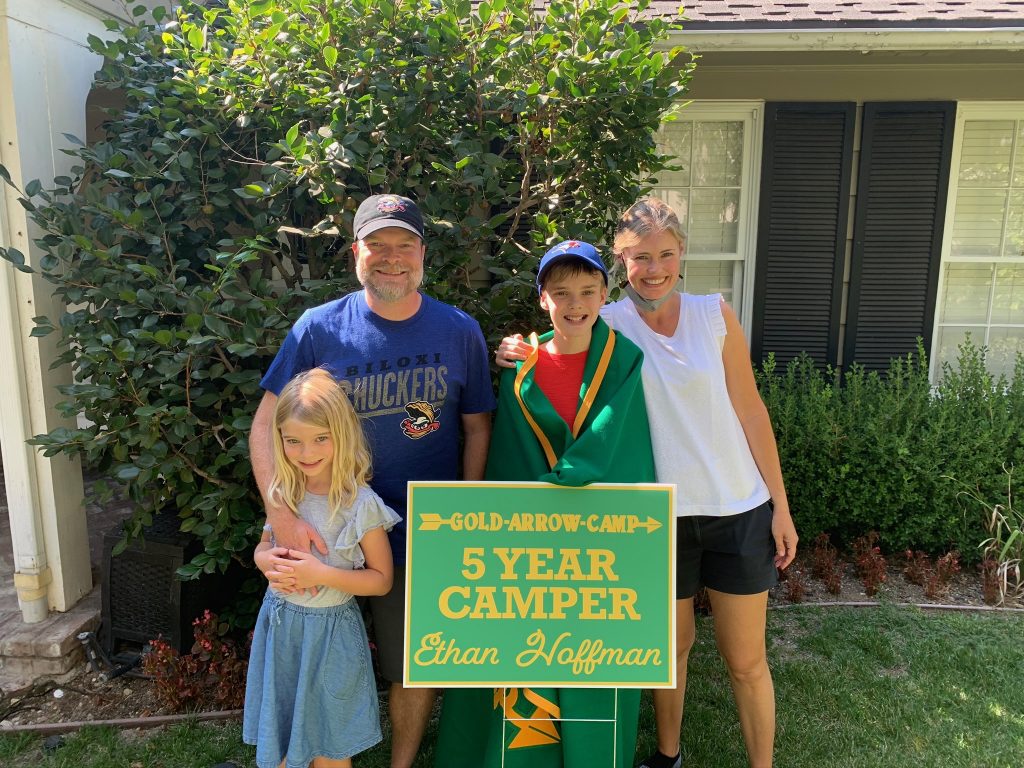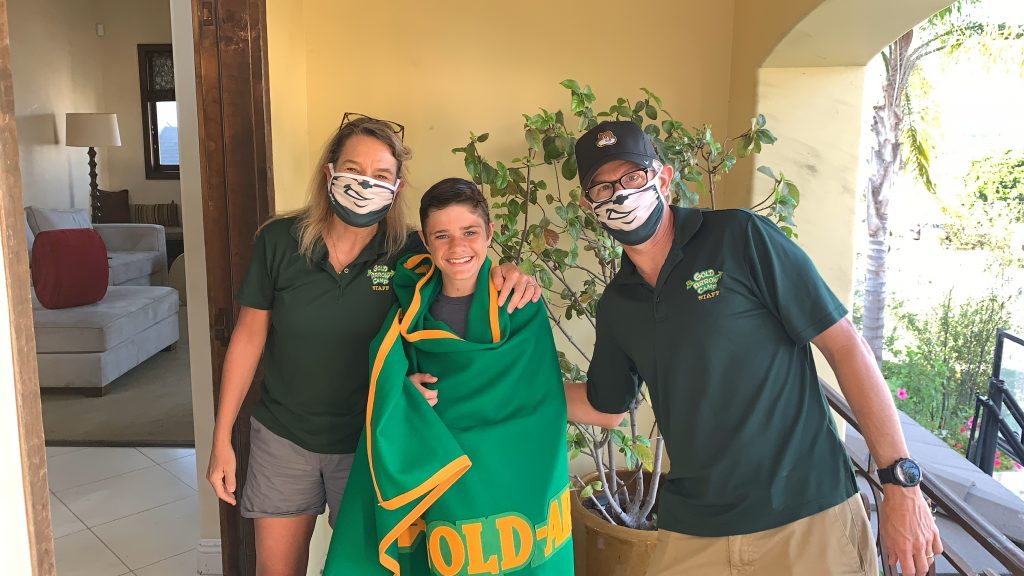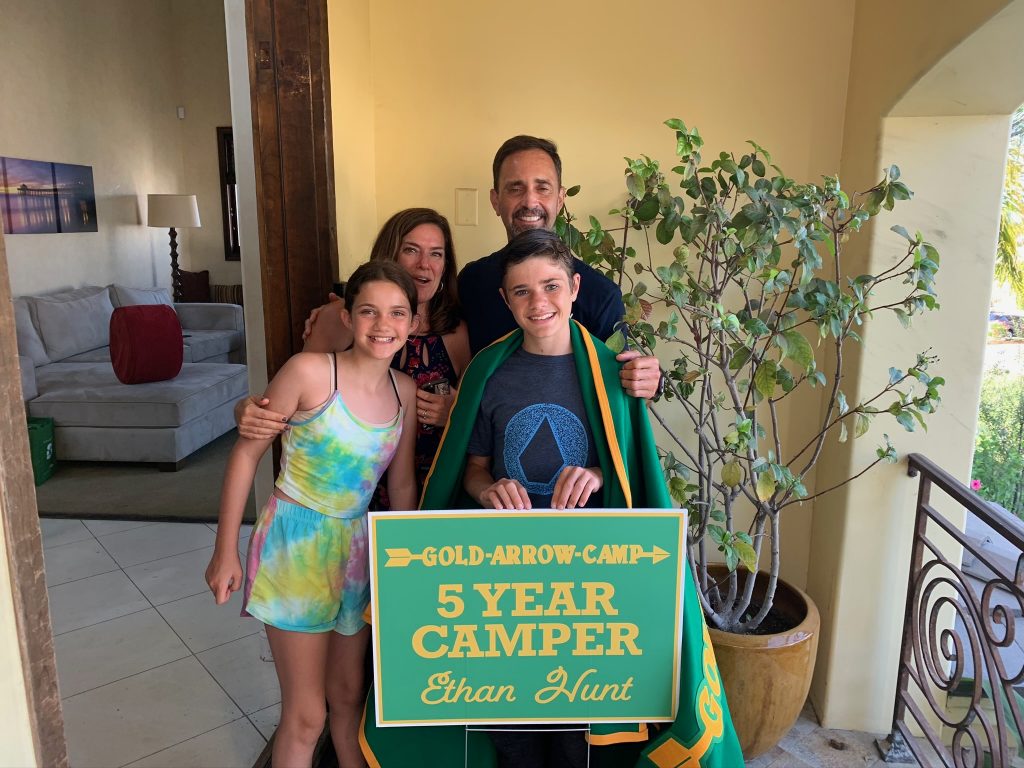Soy’s Well-Deserved Recognition
We are so lucky to have such amazing staff at Gold Arrow Camp, and every so often they are recognized for their incredible work outside of GAC. We want to take this opportunity to congratulate our very own Andy “Soy” Moeschberger on being awarded not one, not two, but three awards this year! He has worked so hard on many projects, especially legislative work to keep camps running and at the forefront of discussions amongst our political leaders. His work does not go unnoticed and we are so glad that it was noticed on a national level!
Grant Gerson Service Award – WAIC (Western Association of Independent Camps)
-The Grant Gerson WAIC Service Award pays tribute to those who make an extraordinary contribution to WAIC and to the advancement of the camp movement, and who have played an important role in the success of the association.
Southern California/Hawaii Service Award – ACA SoCal/Hawaii (American Camp Association)
-The Service Award is given as recognition to exceptional service to camping and the local area.
National Service Award – ACA (American Camp Association)
-This Service Award is designed to recognize continued and increasing service beyond the field/affiliate office level.
New GAC Program – GACpacking!
Does your camper enjoy backpacking and hiking in nature? If so, this program is a wonderful way to do all of that and more. GACpacking provides an introduction to backpacking skills and life on the trail in a fun and compact one-week trip. Our GACpacking program is designed to serve as a bridge between the one-night backpacking experience offered as a regular part of our camp program and the Outdoor Leadership Course. On the trail, our hikers will have the opportunity to prepare their own meals, practice map and compass navigation, apply Leave No Trace principles and ethics, participate in sustainable backcountry living, and study wildlife biology. Each day there will also be time for reflection, dialogue, and discussion.
For more information about the GACpacking program, please visit https://goldarrowcamp.com/why-gac/gacpacking/ or email mail@goldarrowcamp.com with any questions.
Bring more connection, fun, & social emotional growth to your school this year with GATA!
PLEASE SHARE ABOUT GATA (Gold Arrow Teacher Academy) WITH THE PROFESSIONAL DEVELOPMENT COORDINATOR AT YOUR SCHOOL!
The webinars are great reminders of super valuable information that I’ve heard/read over the years. I love the chance to apply this information in a new teaching role. I’m grateful for the opportunity to learn and grow with like-minded people.
-Abbey, Teacher & GATA Member
This school year, GAC Directors are bringing the trainings we do with counselors each summer to educators all across the country through GATA (Gold Arrow Teacher Academy) and through custom professional development webinars for schools. Gold Arrow’s entire director team has children of their own (currently ranging in age from 4-26), and most of us were teachers before or while working at camp. Supporting children by providing teachers with training and support to create positive, connected classrooms is a natural use of our skills and experiences (and is super fun for us).
If you’re looking for a personalized, engaging professional development workshop for your school team, get in touch. We’d love to create an upbeat workshop geared specifically to the needs of the students and teachers at your school. Contact us and let us know what you’re interested in.
GATA resources have been developed based over years of training our counselors and have been implemented successfully by GATA members over first half of this school year to support students’ social and emotional well-being.
The topics we’re covering in GATA include:
Creating Connections
Celebrating Strengths
Cultivating Character
You – or your whole school – can join GATA to have immediate access to the engaging and easily implementable SEL activities that address the social and emotional well-being of students and teachers.
New GATA members have immediate access to our past resources, can join live (or access later) all of our upcoming webinars, and receive weekly PDFs with low or no-prep activities that work virtually or live.
Join GATA
GATA WEBINARS NOW AVAILABLE ON DEMAND FOR MEMBERS
(Non-members can purchase single webinar access.)
• Creating a Positive Classroom Culture
• Coaching Students to Better Collaboration & Communication
• Personal Growth & Connection Activities for Students
• Creating a Strengths-Focused Classroom
ACTIVITIES & RESOURCES NOW AVAILABLE IN THE MEMBER LIBRARY
Activities to Foster Online Classroom Connections (FREE sample PDF)![]()
Questions for Classroom Connection
Creating a Positive Classroom Culture
Songs & Videos
Build Positivity & Optimism in Your Students
Guess Who
Jokes & Riddle
Teaching Kids Better Communication & Collaboration
Rules & Language of Collaboration
Create an Animal
Chill Music for Your Class
Coaching Students to Better Listening
SMART Goals
Autonomy & Problem Solving
Kindness Bingo
Filling Buckets
Personal Growth & Connection Activities
Friendship Bingo
Creating a Strengths-Focused Classroom
Inner Strengths
Encourage the educators at your school to join GATA for support, connection and fun SEL resources for teachers and students!
Questions? Get in touch with us to discuss your school’s SEL professional development needs!
One Word
For each of us, 2020 held a lot of different moments and emotions. We have now entered 2021, which is a great time to sit back and reflect on all that was last year. Audrey “Sunshine” Monke, GAC’s Chief Visionary Officer, shares with us an activity that your entire family can do together that encourages everyone to choose one word that will help to provide guidance, inspiration, and direction for the year.
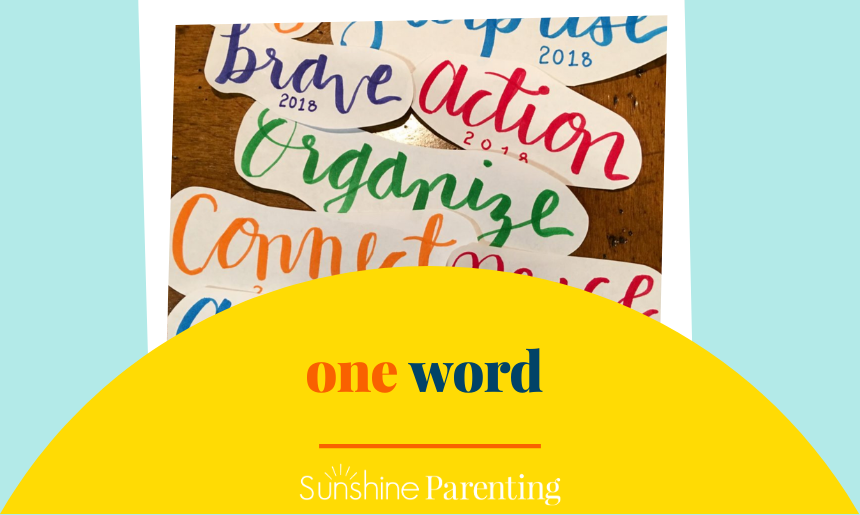
On her website (Sunshine Parenting) and her podcast, Sunshine shares many resources to encourage family time and reflection, among many other useful topics for parents. To access those resources, sign up to receive her weekly emails or subscribe to her podcast.
Five (More) Reasons Great Parents Send Their Kids To Camp
There are so many reasons great parents choose to send their kids to summer camp. Several years ago, I shared five of them on the most popular post I’ve ever published. But now I have more to share. Consider this the second installment in a series with others to follow, because the list of ways kids benefit from summer camp is seemingly endless.
Since I last wrote about reasons great parents send their kids to camp, I conducted research and found that camp experiences positively impact campers’ happiness and social skills. I’ll begin, then, with happiness.
The first reason great parents send their kids to camp is that it helps them BE HAPPIER.
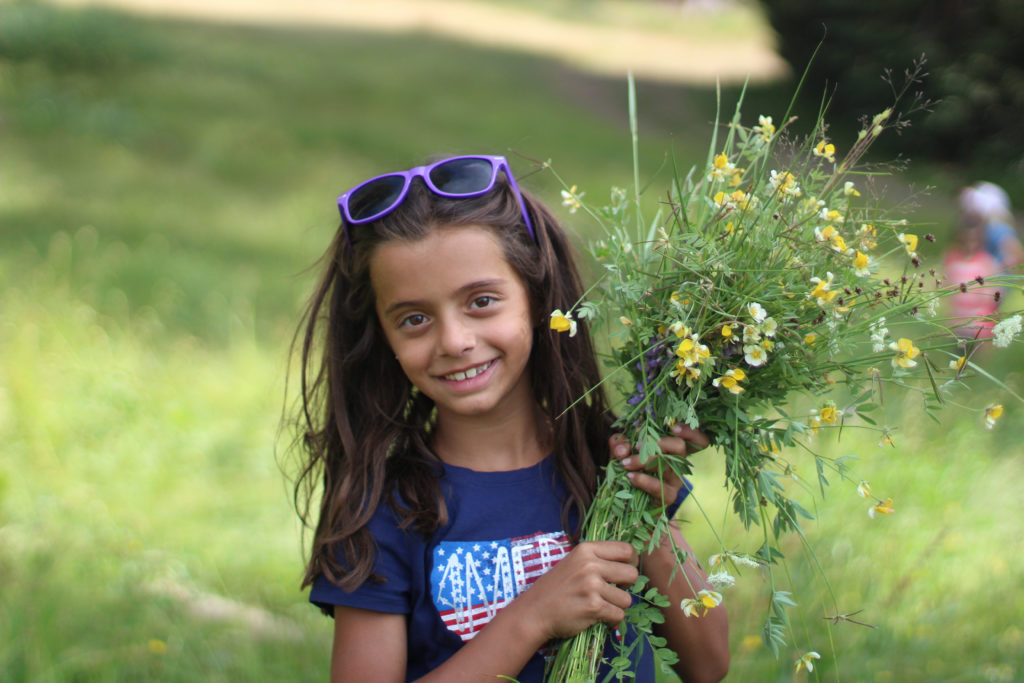
“Camp makes me happy and nothing can prepare me for life as well as this environment.”
“Come on,” you’re thinking, “How can two weeks in the mountains change my child’s overall happiness level?” Good question. One of my research findings was that both parents and kids agree that children feel happier after being at camp. The combination of positive emotions, deep friendships, being disconnected from technology, and just plain fun makes kids feel happier at and after camp I’ve previously written about how the science of positive psychology may explain why kids flourish at camp and demonstrate increased happiness levels before and after their camp experience. In this era, when we’re seeing our kids suffer from rising rates of depression and anxiety, isn’t it nice to know that there’s a place where kids can go that actually serves as a positive intervention for overall happiness?
Next, great parents send their kids to camp because it helps them DISCOVER THEIR BEST SELF.
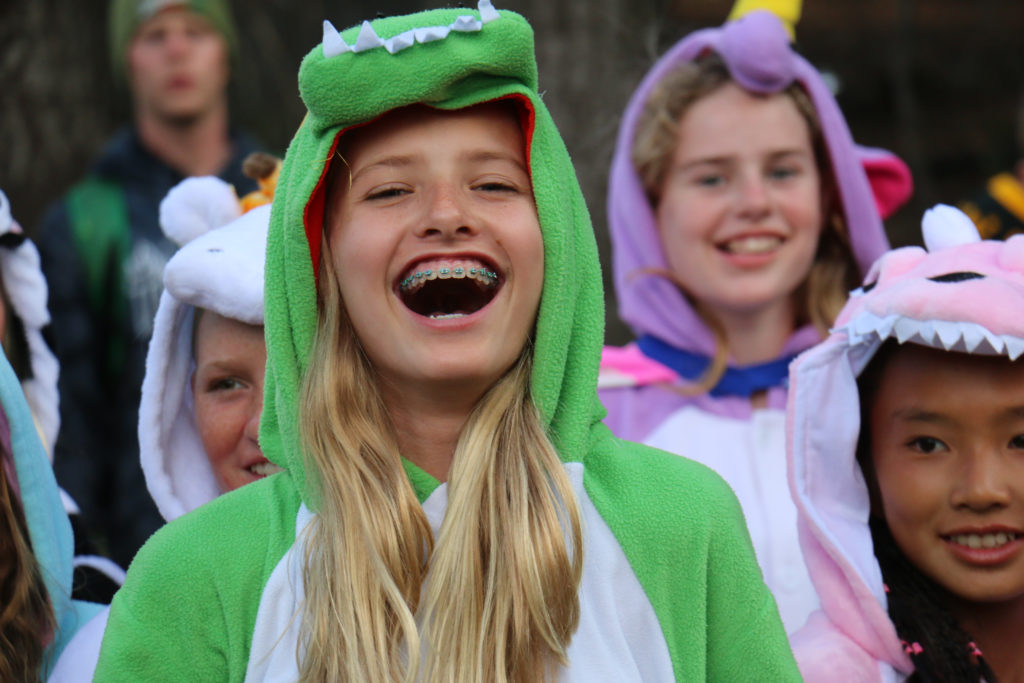
“Being at camp gives me this sense of belonging that I’ve never felt anywhere else.”
In many different ways, but all with the same underlying meaning, campers describe camp as a place where they can be themselves. They feel open to saying and being who they really are, not stuck conforming to what’s considered “cool” and “acceptable” in the outside world. Surrounded by a diverse group of friends of different ages and backgrounds, kids develop the ability to explore their own interests and express their own thoughts better. As a parent, I hate to admit that I sometimes push my own interests on my kids, even when I don’t mean to. For example, I might say, “You’re so good at softball! Don’t you want to keep playing?” when my child says she doesn’t want to play anymore. Stepping away from their regular activities and normal life schedules (as well as their well-meaning but often overly directive parents), kids have the opportunity to think through what’s really important to them as individuals.
Third, great parents send their kids to camp because it helps them GROW THEIR GRIT.
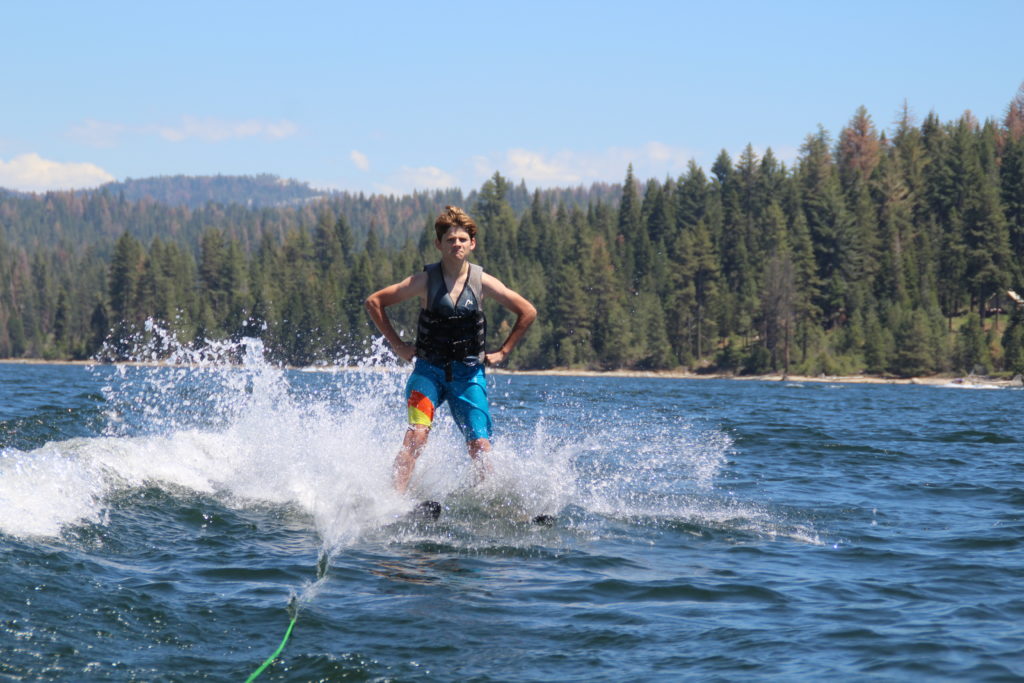
“The counselors challenged me to do things I wouldn’t normally do at home.”
Learning self-reliance, experiencing mistakes and failures, and reaching for goals are all camp experiences that help campers develop their grit, an important character trait that we’ve learned is critical to success in life. Camp offers a unique experience to children – the chance to be away from their parents for a short period of time and learn to handle more things on their own. Without parents to step in and assist, or rescue from mistakes, kids develop confidence in their own ability to make decisions and solve problems. Just being “on their own” is a huge confidence builder for kids, and they feel more self-reliant after being responsible for themselves and their belongings for a few weeks.
Fourth, great parents send their kids to camp because it helps them MEET POSITIVE ROLE MODELS.
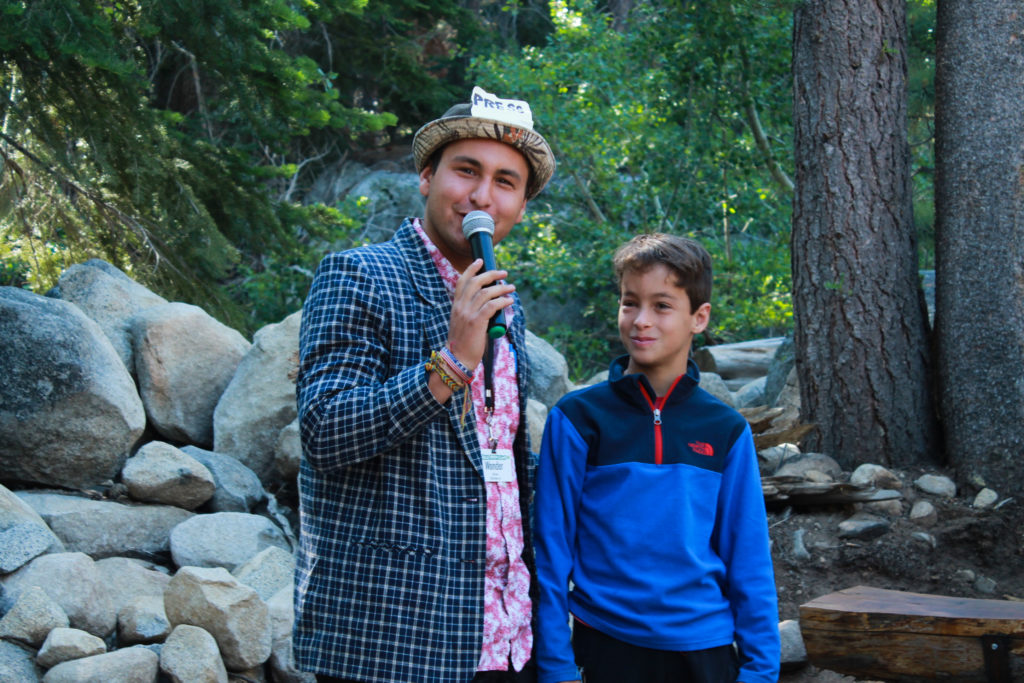
“Camp has made me into a leader, having the best role models as my counselors to look up to.”
One of the best things that happens at camp is that kids get exposed to a different kind of adult role model than what they see in the media. No reality TV stars will be gracing the waterfront or backpacking trips at summer camp. No perfectly coiffed and stick-thin model will be standing next to them brushing teeth in the bathroom. No macho guy who speaks disrespectfully about women will be leading the campfire discussion. In fact, the college students who choose to spend their summer working at camp are an outstanding bunch of young adults. Most are stellar students with outstanding leadership skills. They love the outdoors and working with kids, and they are the kind of people we want our kids to emulate. They love leading discussions on topics that are important to their campers and helping them build confidence. There’s no focus on appearance at summer camp, and so designer clothes, make up, and trendy hair-styles don’t hold the same importance that they do at junior high or high school. In fact, the predominant style at camp is pajama pants paired with dirt and sweat-stained t-shirts. And we hardly ever spend time in front of a mirror.
Finally, great parents send their kids to camp because it helps them DEVELOP BETTER COMMUNICATION SKILLS.
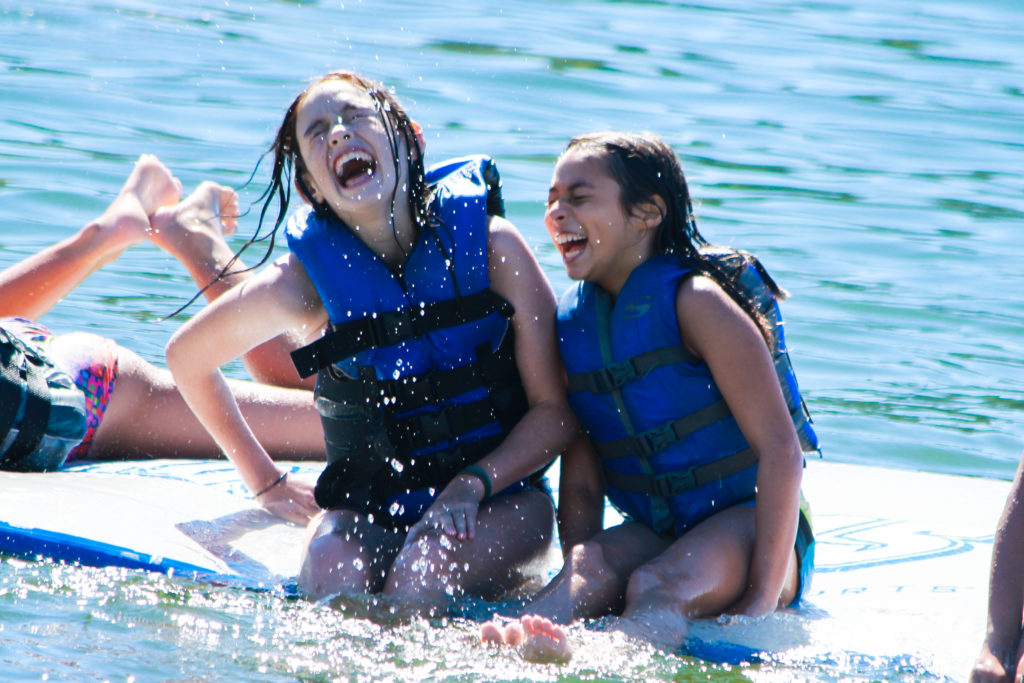
“The other part of camp that has influenced me the most is the simple idea of trying to always smile.”
In post-camp surveys, campers consistently write about how ditching their electronics was one of the best things about their camp experience. In fact, it’s a practice they take home with them, setting aside phones during meals with friends so they can connect more genuinely, face-to-face. In the absence of technological tethers, campers have many hours each day to practice these face-to-face communication skills. They learn the importance of things like eye contact, smiles, and body language as they positively interact with their peers. Counselors help facilitate lively discussions, and campers learn to ask each other questions, listen more carefully, and figure out common interests. Kids learn and practice valuable communication skills at camp, which they can use throughout their lives.
There you have it! Five (more) reasons that great parents send their kids to camp!
This post was originally published on Sunshine’s blog, Sunshine Parenting. For more camp-related posts, visit the “Summer Camp” page at her blog.
5 Year Blankets & 10 Year Jackets (At-Home Edition)
For long-time GAC campers and staff, receiving their Five Year Blanket is a BIG DEAL. Campers and staff look forward to being wrapped in their blanket at the final Appreciation Campfire of their 5th summer at GAC. This tradition is rich in history dating back to founder Manny Vezie’s days playing football for Notre Dame.
This year, due to the pandemic, we were not able to have in-person GAC sessions, but we did have a phenomenal group of 105 kids participate in GALA, our online leadership program.
During super secret road trips (coordinated with parents) this summer, the GAC crew drove throughout the state of California surprising our 5 & 10 year campers!
Congratulations to the amazing group of loyal GAC campers who celebrated their blanket & jacket years with us in 2020!
Photos
Learn more
Happy Campers at Home: 4 Ways to Boost Family Relationships
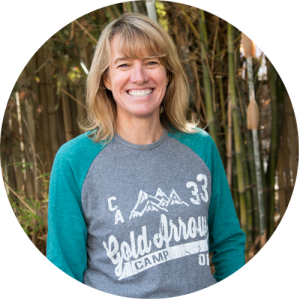 Audrey “Sunshine” Monke, GAC’s Chief Visionary Officer, researches, writes, and speaks about parenting, social skills, and strategies for raising thriving kids at Sunshine Parenting. In her book, Happy Campers: 9 Summer Camp Secrets for Raising Kids Who Become Thriving Adults, Sunshine shares simple ideas parents can use to create the fun, connection, growth, and happiness of GAC at home. Here are four of Sunshine’s favorite connection tips for families.
Audrey “Sunshine” Monke, GAC’s Chief Visionary Officer, researches, writes, and speaks about parenting, social skills, and strategies for raising thriving kids at Sunshine Parenting. In her book, Happy Campers: 9 Summer Camp Secrets for Raising Kids Who Become Thriving Adults, Sunshine shares simple ideas parents can use to create the fun, connection, growth, and happiness of GAC at home. Here are four of Sunshine’s favorite connection tips for families.
If you were to ask me the most important thing parents can provide their children, camp counselors can provide campers, and teachers can provide students, I can sum it up with one word: Connection.
-Audrey “Sunshine” Monke
Building a relationship and connecting with kids—while also helping them learn to connect with each other and form friendships—is the most important experience we can provide our kids to inoculate them against the inevitable setbacks they will face in life.
Here are some simple ideas from GAC for boosting family connections.
One-on-One Check Ins
On our counselor job description, one of their duties is to “check in with each camper, every day.” We call these check-in meetings “One-on-Ones.” Counselors ask campers specific, open-ended questions to elicit how campers are feeling. The counselors ask about their friendships, activities, how much they’re missing home, what’s going well, and if they need help with anything.
These are individual conversations, out of earshot of other kids, that last anywhere from two to five minutes. The campers get accustomed to the check-ins, so they’re not surprised when their counselor starts chatting with them.
As a simple way to deepen your connection with your kids, and know how you can best support them, try having at least one daily one-on-one chat with each of them, modeled after what camp counselors do:
Turn off or put away your phone (and have them put theirs away, too).
Stop doing everything else (cooking, looking at a magazine, etc.).
Give your child your full attention (eye contact, body turned toward them, not thinking about other things).
Ask them a few open-ended questions. “Tell me about the best part of your day” is an easy place to start.
Your one-on-one chats can be anytime. You can make it a daily ritual over an after-school snack, while sharing a hot drink, or while tucking them in at bedtime, but that small, concerted daily investment of time will lead to a closer connection between you and your kids.
If your kids are already teens, know that the best way to have one-on-one chats is to be open to whenever they initiate the talk with you rather than forcing them to be on your schedule. When they talk, drop everything else you’re doing, focus on them, and listen!
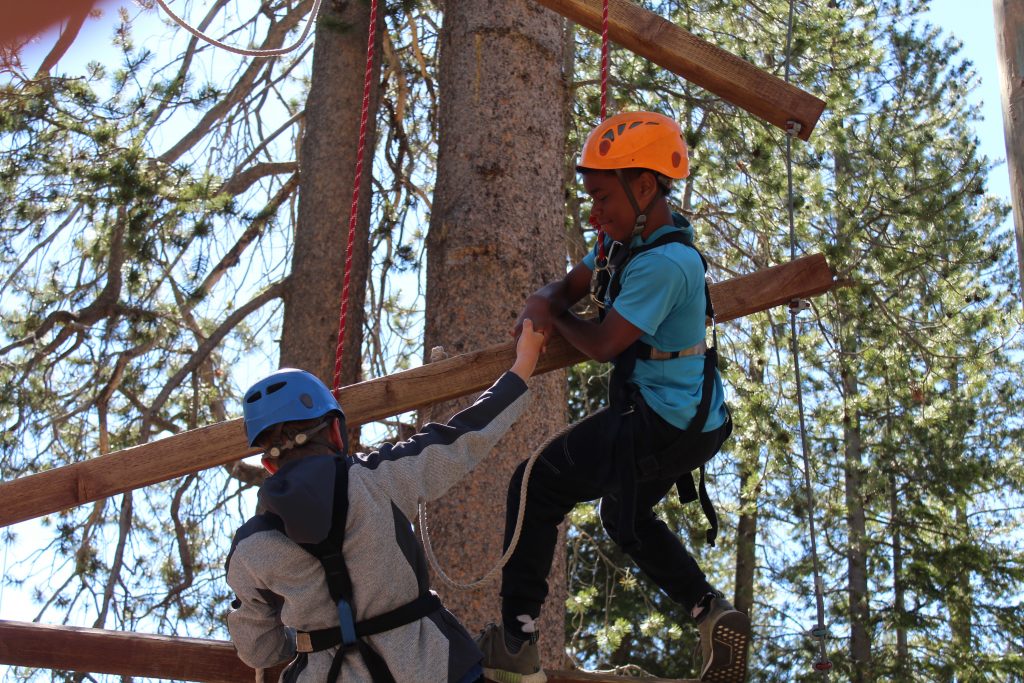
Daily Sharing
A highlight of each day at camp is our evening campfire. Gathered around the fire, counselors lead a daily sharing practice. Campers remember these conversations fondly and the evening campfires are many campers’ and staff members’ favorite camp memories.
Find a time each day – dinner or bedtime are often good times to set up a consistent sharing practice – to spend just a few minutes sharing with each other.
The only rules for your daily sharing are that one person speaks at a time and everyone else listens to the person speaking. Your kids may need a few reminders, as listening attentively is a skill most of us need to work on!
Your kids (especially if they are preteens or teenagers) may balk when you bring up the idea of daily sharing and do it for the first time. Stay strong. They will eventually learn to appreciate your daily sharing practice. Even if they continue balking, don’t stop. Even if they don’t show it on the outside, they will eventually come to appreciate a time each day when caring people listen to what they have to say.
Here are a few daily sharing ideas:
“Highs & Lows” or “Roses & Thorns”
This is a simple and well-known sharing practice where each family member shares something good that happened in their day (a high) and something bad (a low). Sharing often leads to stories and discussion about different events — the side track conversations are good, so let those happen! There are also additions you can add. At camp, we often do High, Low, and Hero, where each camper shares their high and low as well as someone who was kind to them or a “hero” that day. Another twist on this activity is called “Rose, Thorn and Leaf.” The rose is the high, the thorn is the low, and the leaf is something you’re looking forward to.
Three Good Things
Each person shares three good things that happened in their day or three things they are grateful for. This gratitude exercise (when journaled) has been proven to reduce depression symptoms. While your sharing conversation won’t be written down (unless you choose to do so), it can still bring a positive focus to your sharing. Ideally, because everyone anticipates the daily sharing, everyone will be more aware of and looking out for the positive things that happen every day.
Kindness
Sunshine loves the idea of sharing something each person did that was kind or something kind someone else did for you. Focusing on kindness is incredibly important in our increasingly unkind-seeming world.
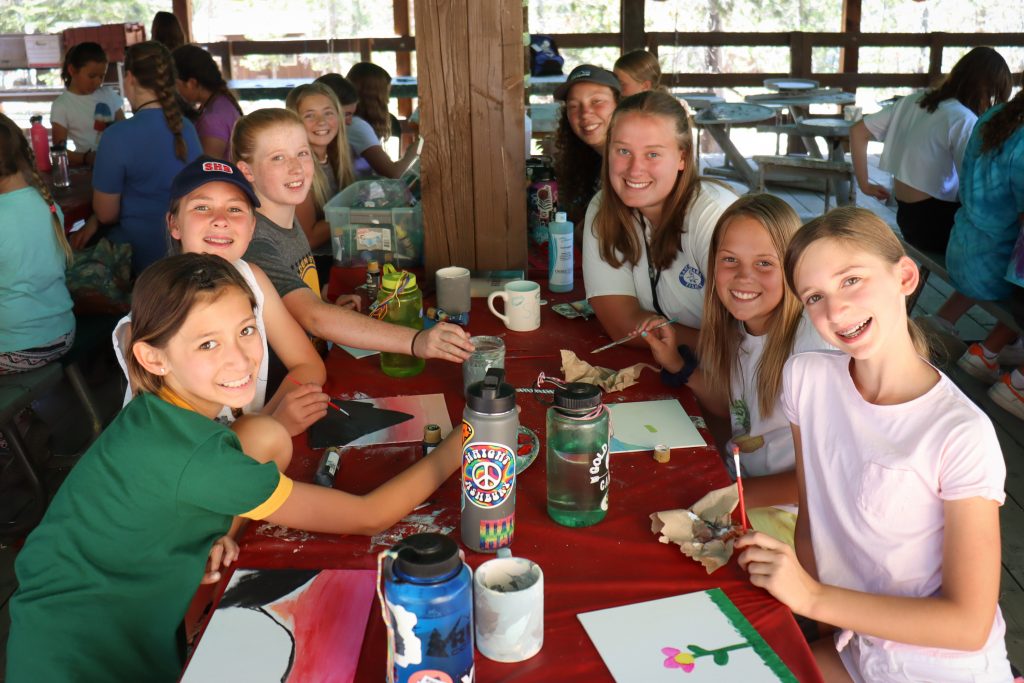
Ask Questions
Questions are a great way to connect with each other and get conversations started.
Here are a few to get you started (from the Questions for Connection GAC counselors use):
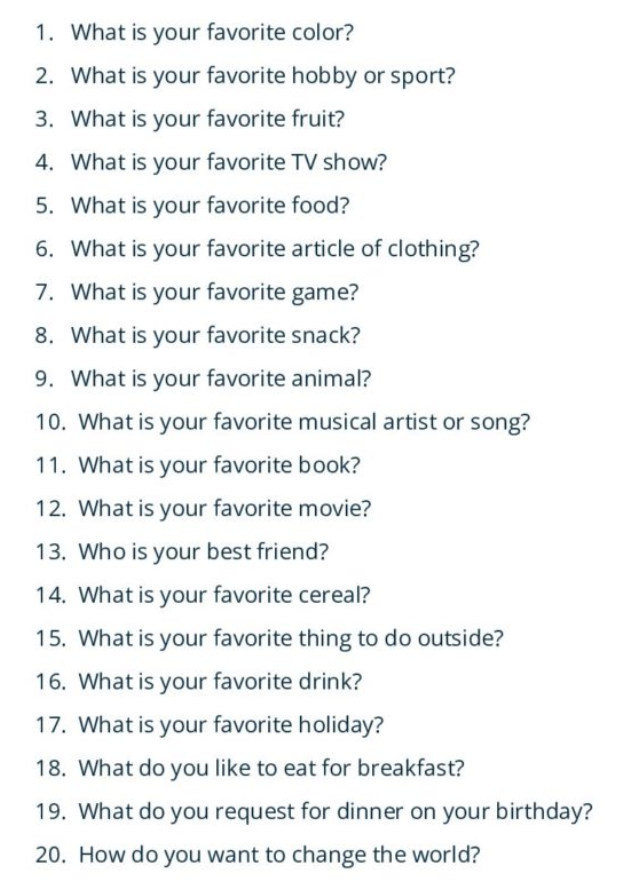
Sticky Note Compliment
At GAC, we focus on campers’ strengths and encourage them to think about building upon their strengths. Often as parents we spend a lot of time managing our children or helping them with things they are not good at. A great way to connect and make your child feel great is to leave an encouraging note on your child’s bathroom mirror, on their pillow, or in their lunch box. Tell your child something you really appreciate about them and something that’s an inner quality or strength.
Download Family Connection Tips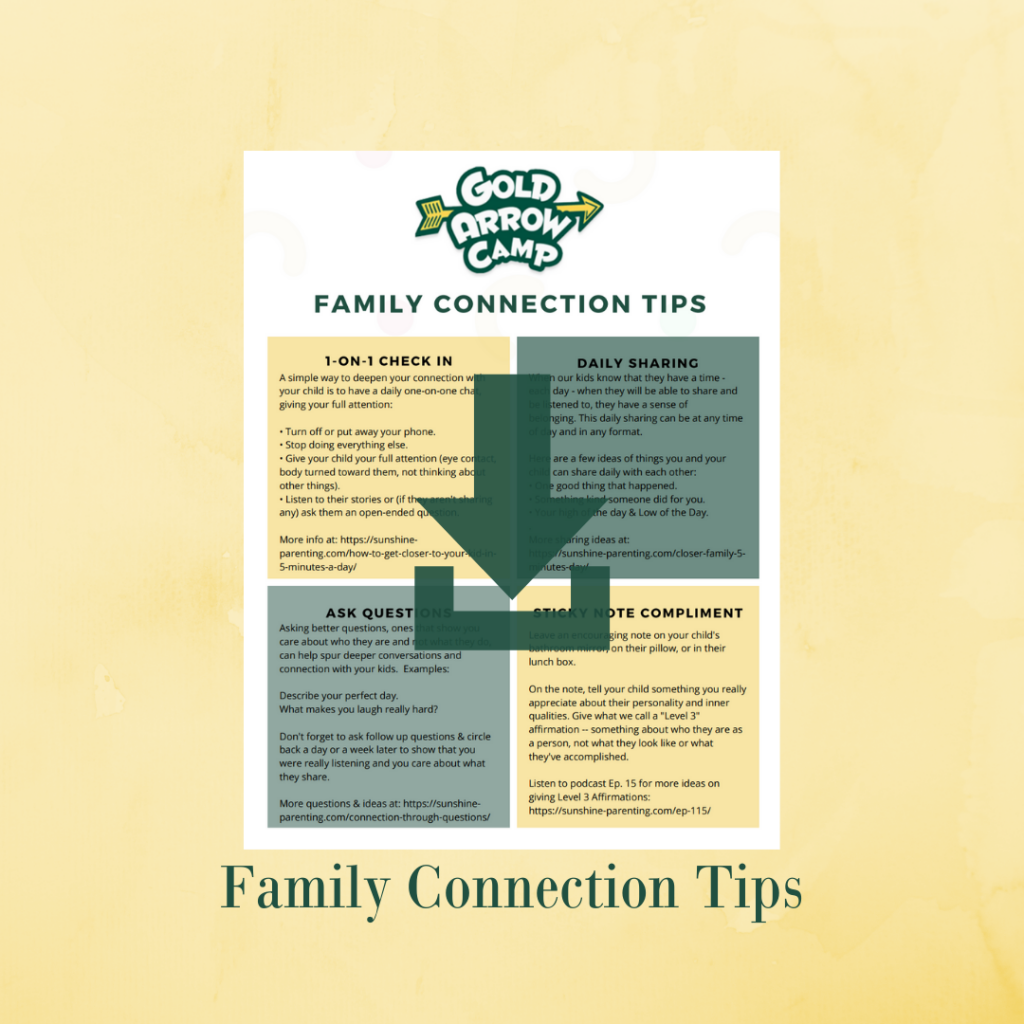
Resources/Related Posts
BE YOU: Positive Self Talk
BE YOU Week 6: Positive Self Talk
“The more I like me, the less I want to pretend to be other people.”
– Jamie Lee Curtis
The self-talk you do in your own head can help or hurt you. If you are talking negatively to yourself, it will hurt your confidence and your self-love. If you are talking yourself up and speaking positive things, you will in turn help yourself be more confident, and will hopefully love yourself all the more!
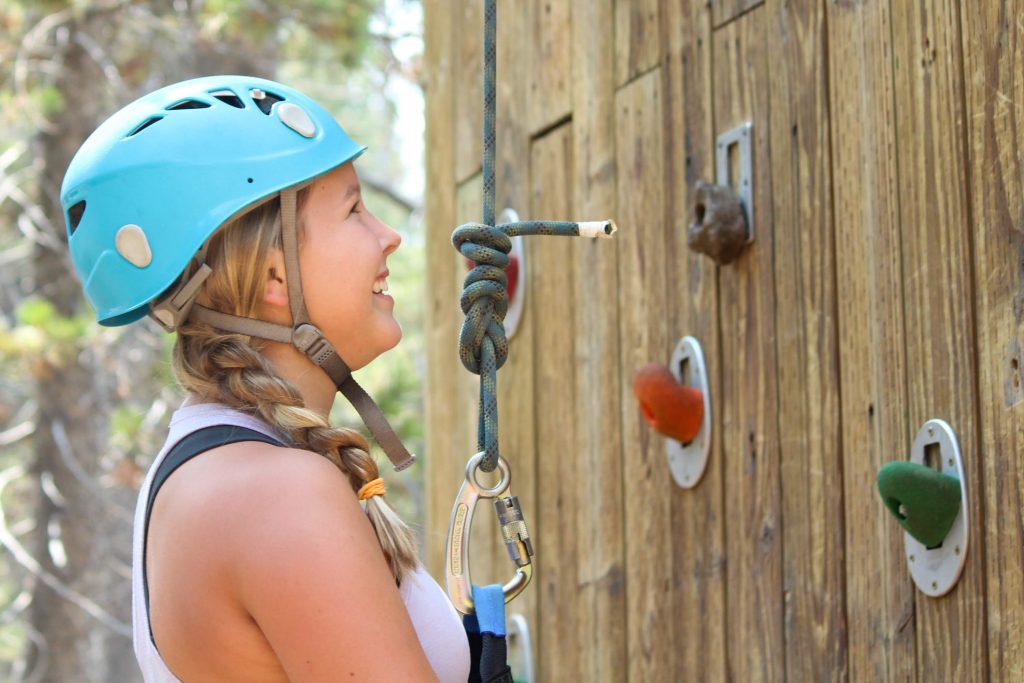
The way we think changes how we feel and our behaviors. To be more confident, you have to change the way you think about yourself. Sometimes we say mean things to ourselves when we should be speaking to ourselves the same way we would speak to a friend. Before saying something to yourself, think, “Would I say this out loud to a friend?” If not, erase it and move on. If so, say it and celebrate!
We know ourselves better than anyone else. We know our strengths and our weaknesses, and we know the areas we need to improve upon versus the areas where we are stronger. It’s often easier for us to notice the more “negative” areas in our lives and be more critical with ourselves. Instead of focusing on those negatives, let’s try to solely focus on the positive parts of our lives. Tell yourself you are proud when you accomplish something you have strived to complete. Tell yourself you are a good friend when you help someone in need. Tell yourself you can do it when you are facing something difficult. When you talk to yourself in a positive light, you will likely spread happiness and positivity to others. When you think of yourself with positive thoughts, you will be more confident in your own skin. Nothing looks better than confidence!
This Week’s #GACbeyou Challenge
Journal or share with someone else (can be a parent, sibling, or friend) your answer to this question:
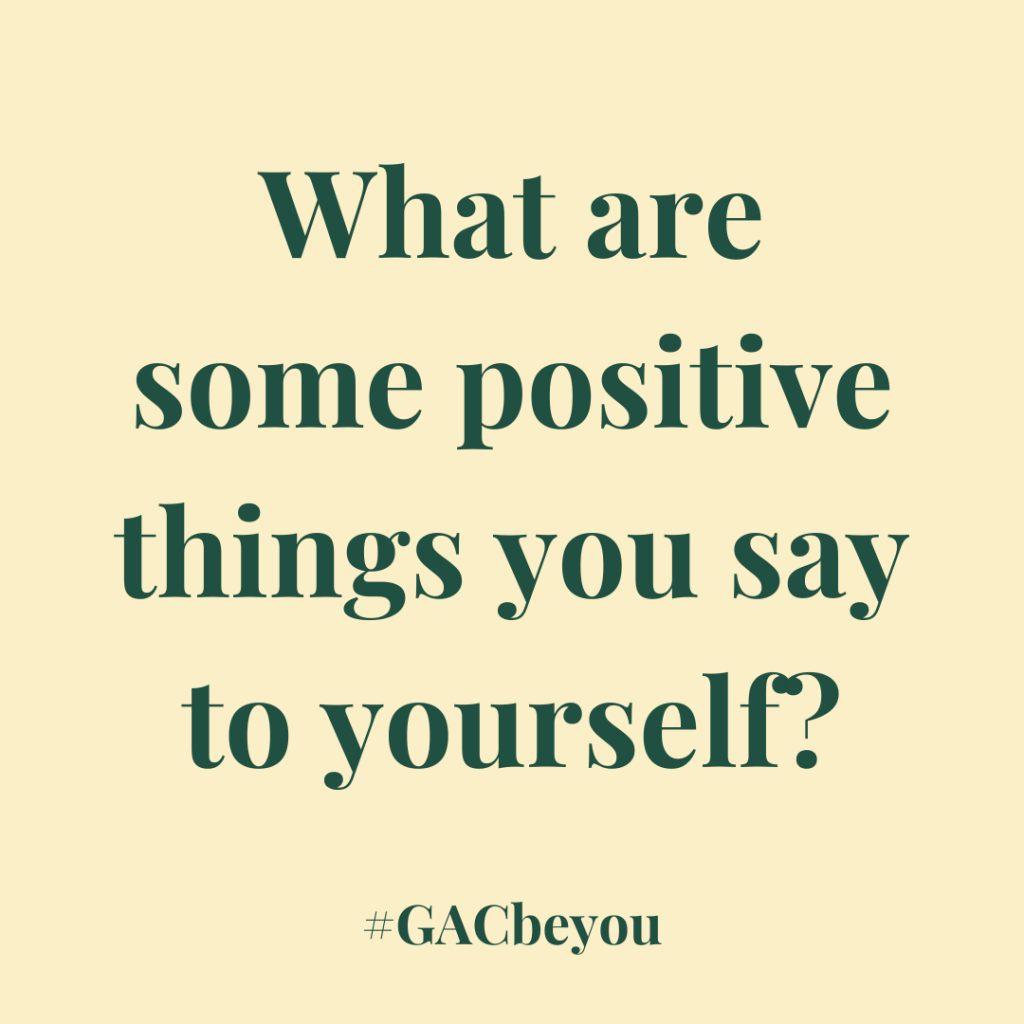
What are some positive things you regularly say to yourself? Write these things down and keep them handy. When you need a reminder of how awesome you are, look back at your list. Looking back at the nice things you have said about yourself will remind you of all of the positive attributes that you have noticed in yourself. Since we sometimes tend to focus on the negatives instead of the positives in ourselves, choosing to notice all of the great qualities about you will help you focus on those positive things.
GACspiration
Want to be inspired? Print out this week’s GACspiration and post it on your bathroom door or mirror (just like at GAC)!
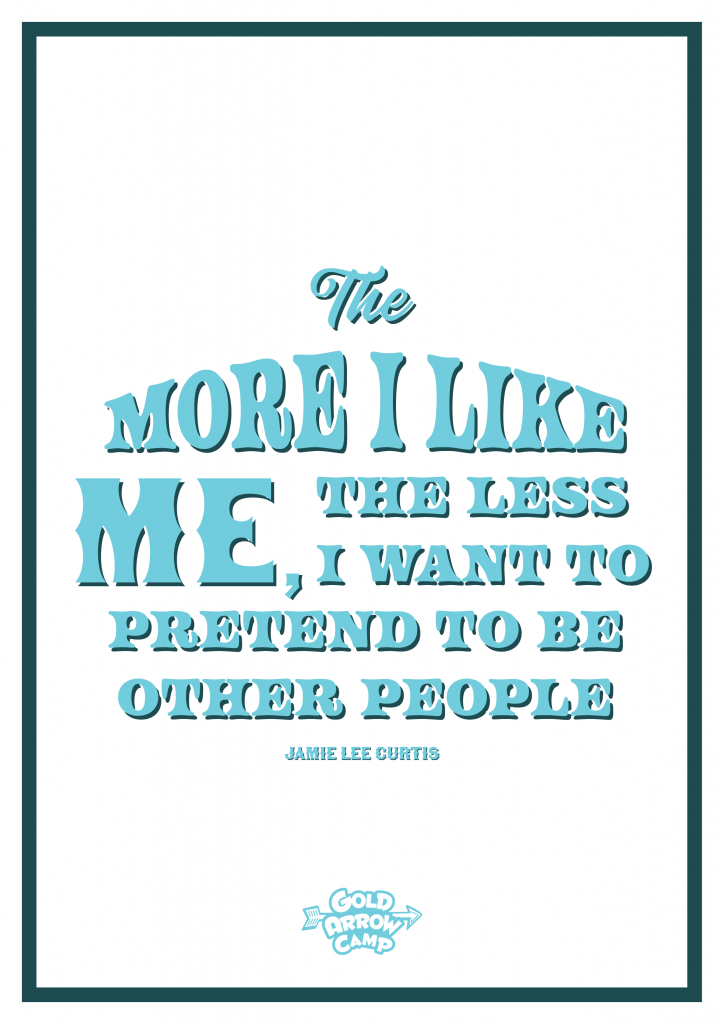
Activity Ideas
Develop a mantra. A mantra is a word or phrase that is repeated to help aid concentration in meditation. Come up with some pep talks for yourself for when you need a boost or a reminder of how awesome you are! Make some mantras for different situations that you may encounter. Write them down or memorize them and say them when needed. You can do it!
Resources
Podcast: Play in new window | Download
Subscribe: Spotify | Email | RSS
BE YOU: Build Others Up
BE YOU Week 5: Build Others Up
“Be somebody who makes everybody feel like a somebody.”
– Kid President
One way we can be our best selves is by bringing out the best traits in others. When we’re at our best, we feel confident in ourselves and don’t feel the need to put others down.
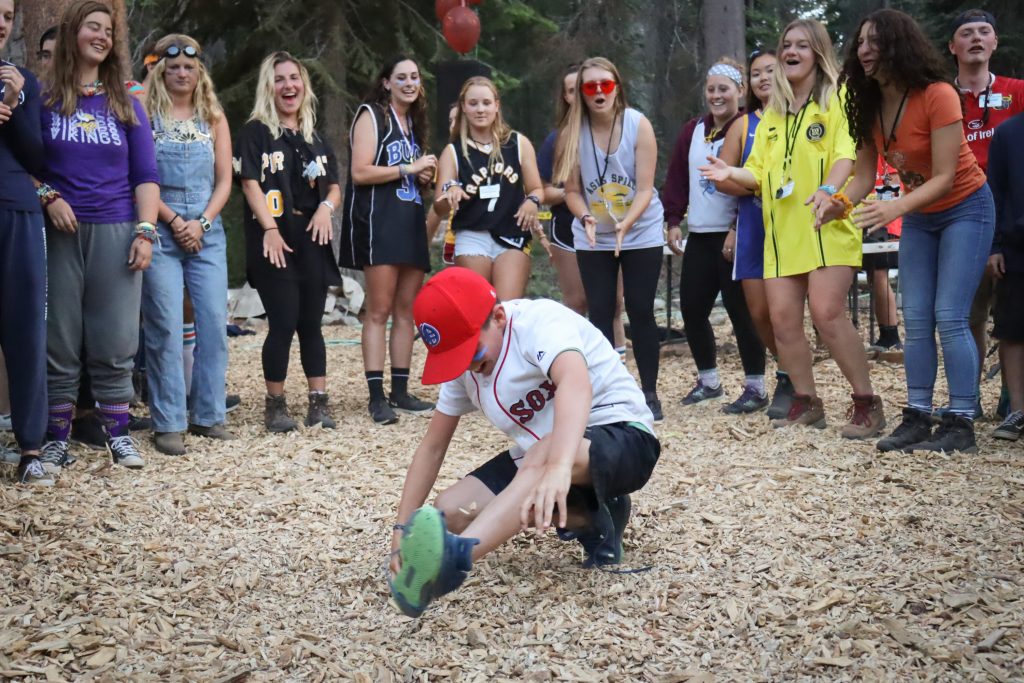
Building others up is a great way to boost the feelings of others while doing something nice for yourself. There are many ways to build others up. Think about things that make you feel more confident or happy, and pay it forward by treating or doing a similar thing for someone else. Here are a few ways you can build others up:
- Introduce them to someone else.
- We all love making new friends. If you have friends that do not already know each other, introduce them!
- Ask questions.
- When you ask questions to get to know someone, it shows that you have a genuine interest in that person’s life. Having someone show interest in your life make’s you feel pretty important!
- Give Compliments or Put-Ups.
- Share genuine compliments regarding their actions or personality.
- Lend a Helping Hand.
- Helping someone is a kind act that allows others to feel worthy of your time and attention.
- Encourage. Encourage. Encourage.
- Share your encouragement and positive thinking with others while they work their way towards a goal.
- Celebrate Accomplishments.
- Nothing feels better than your accomplishments being celebrated by friends! Return that feeling to someone who has accomplished something they have been working hard at or trying to complete.
This Week’s #GACbeyou Challenge
Journal or share with someone else (can be a parent, sibling, or friend) your answer to this question:
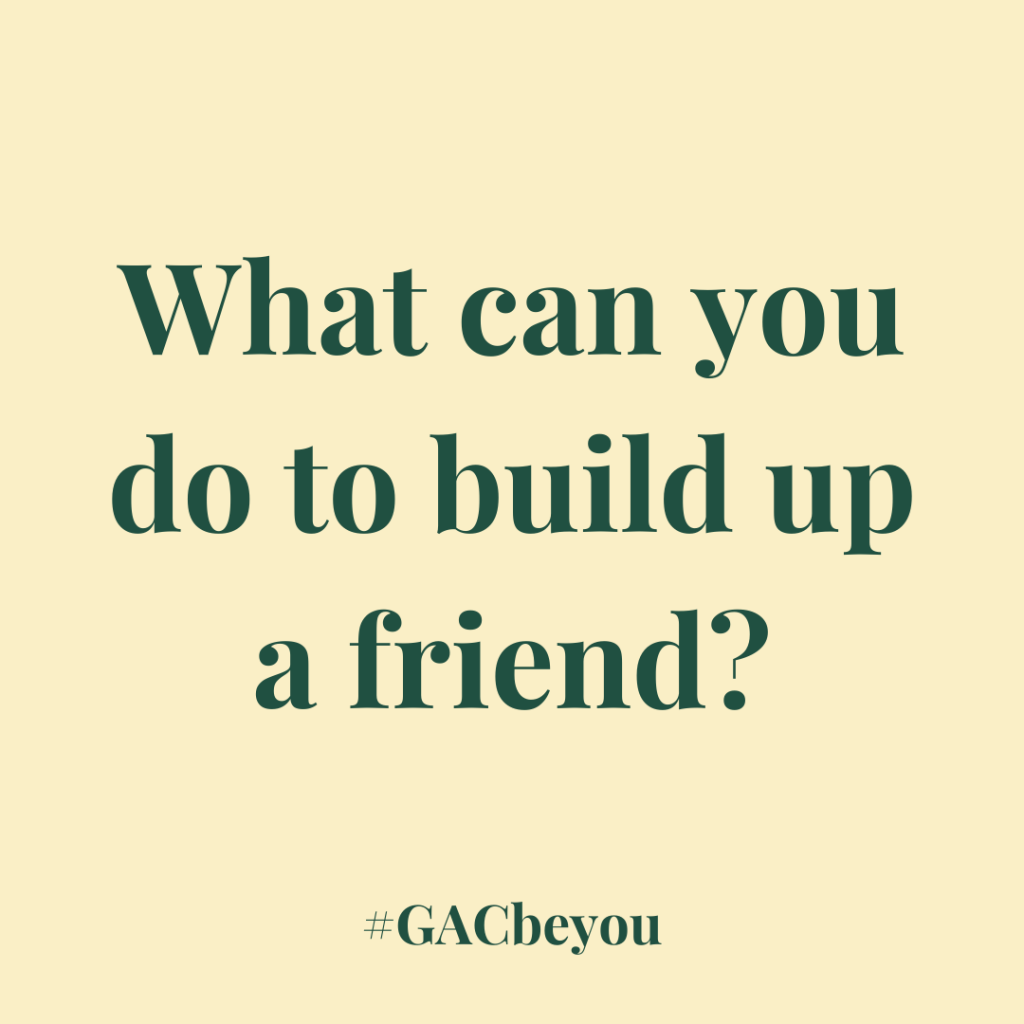
Your challenge this week is to find a way to build another person up and help them be their best self. So think about someone in your life – a family member or friend – and give them a sincere compliment, tell them something positive you notice about them, and look for ways to make them feel loved and accepted.
Ask your friends about things they’re interested in. Find out what makes them feel good and try to remember what they like or what they’re good at. You will help them feel good about themselves, and in turn, you will feel good about yourself.
GACspiration
Want to be inspired? Print out this week’s GACspiration and post it on your bathroom door or mirror (just like at GAC)!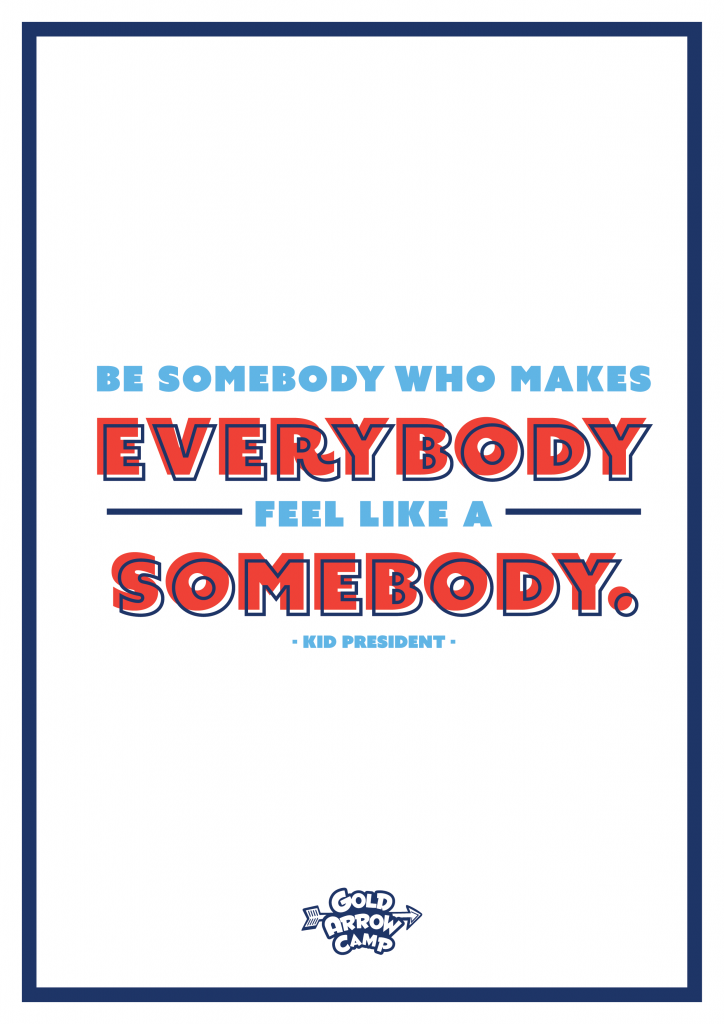
Activity Ideas
This week, we challenge you to build yourself and others up! Find different ways to build your friends up. While building others up, you will feel better about yourself. Keep a list of ways for future reference so that when you need a way to help or encourage a friend, you will be able to look back at it for ideas.
Resources
In Helping Others, You Help Yourself
Podcast: Play in new window | Download
Subscribe: Spotify | Email | RSS
BE YOU: Appreciate, Don’t Compare
BE YOU Week 4: Appreciate, Don’t Compare
Comparison is the thief of joy.
– Theodore Roosevelt
We are so excited to have Chelster join Sunshine this week for our #GACbeyou podcast. This week, we are talking about focusing on the qualities we really like in ourselves and trying to refrain from comparing ourselves to others. It’s our human tendency to see others and immediately compare ourselves to them. We tend to want to be like them and often lose sight of all the wonderful things we bring to the table. Instead of comparing ourselves to others, we can be happy that they are the way they are and appreciate them for that!
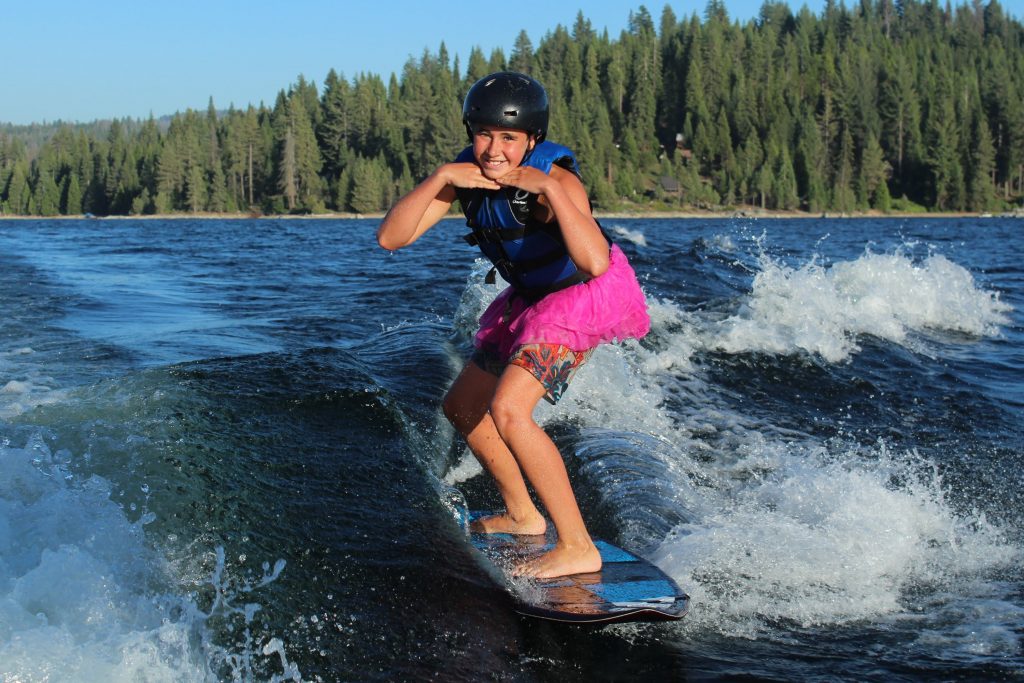
Life is like a team. We all play different parts and bring different skills to the team. It’s important to remember that the team will be at its best when everyone focuses on the skills that they are there to perform.
Instead of comparing, we should appreciate each other. We should be grateful for who they are and who we are. We can combine our strengths and talents with others’ to do bigger and better things. We are also more effective when we are appreciating and lifting others for who they are, instead of bringing them or ourselves down.
This week’s #GACbeyou challenge
Journal or share with someone else (can be a parent, sibling, or friend) your answer to this question:
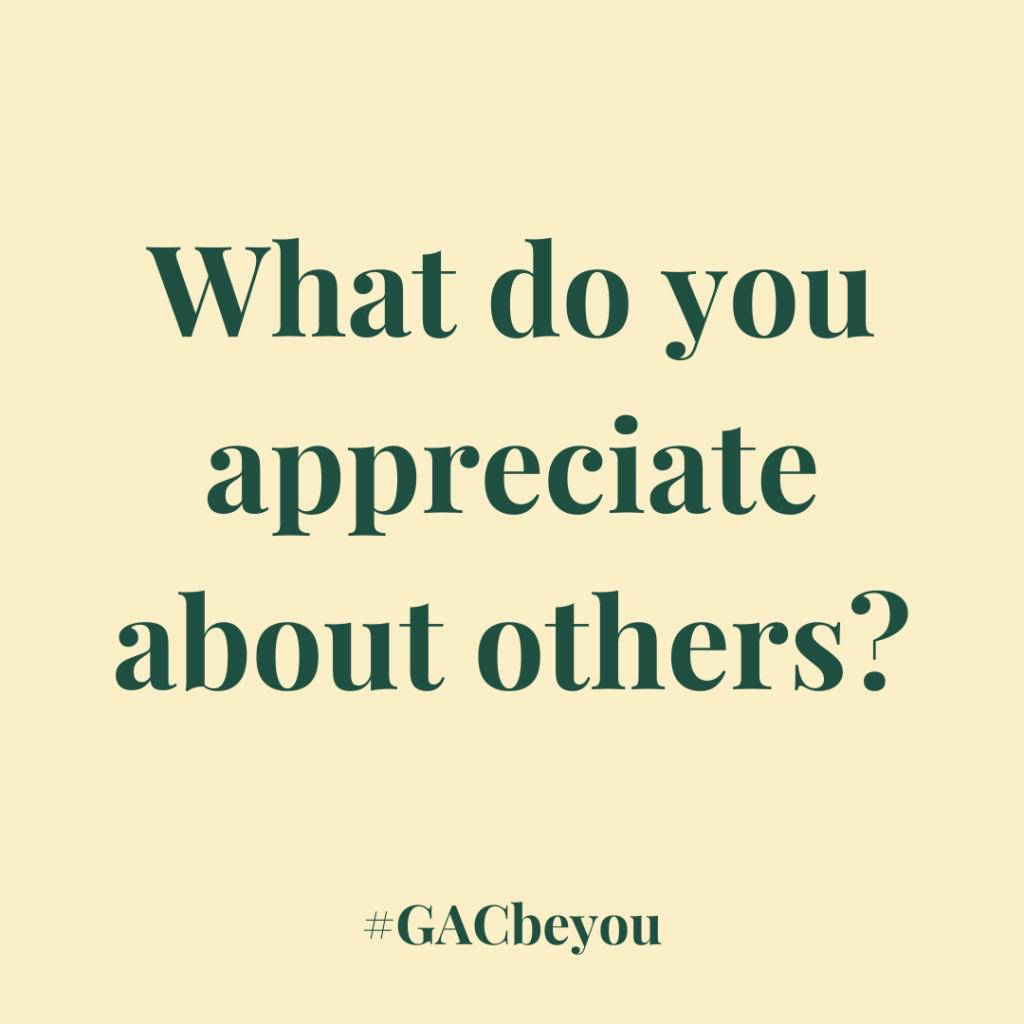
We all have so much to offer and so much to be grateful for. What are some things that you appreciate about others? Maybe you appreciate others’ kindness and their ability to keep secrets. Being able to recognize the things you appreciate about others, will help you appreciate things in yourself more easily.
Practicing daily gratitude is an easy way to appreciate who you are. Be grateful for being exactly who you are. If there is something you appreciate about yourself that you learned from someone else, maybe write them a letter telling them how they impacted your life. In the words of Anthem Lights, “‘Cause anybody can be a copy, and there will always be people talking. So face your fears and chase your dreams, and dance like no one’s watching.”
GACspiration
Want to be inspired? Print out this week’s GACspiration and post it on your bathroom door or mirror (just like at GAC)!
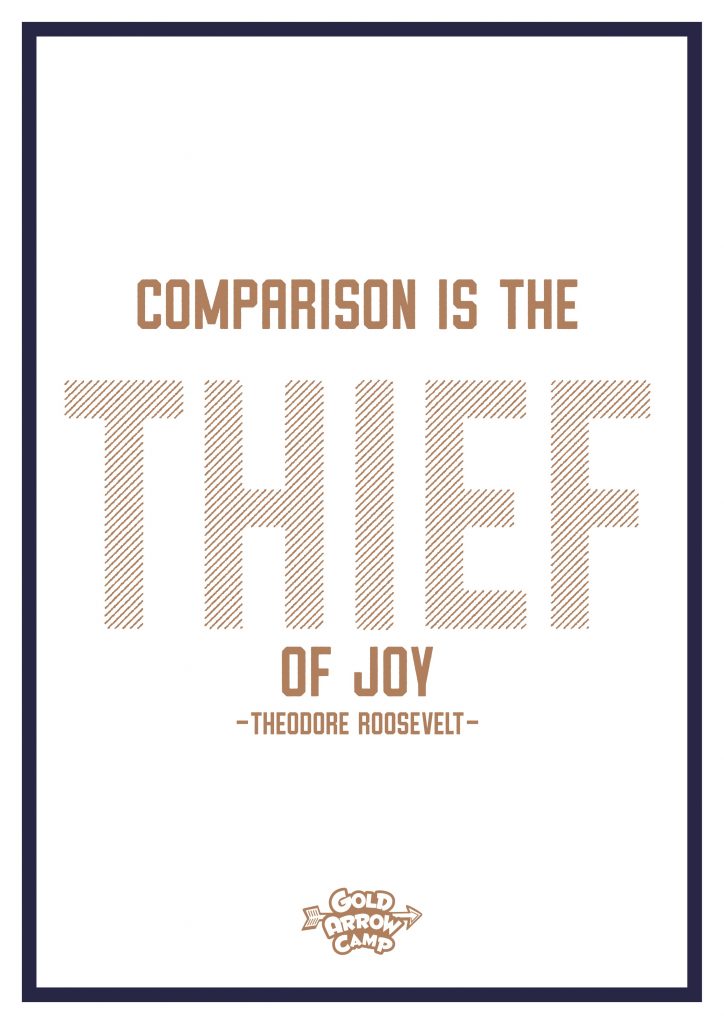
Activity Ideas
This week, we challenge you to learn more about yourself! Make a list of things you really like about yourself, including what makes you unique. Make another list of things others love about you! Ask your family members, friends, or even coaches. When you need a reminder of what makes you AWESOME, you will have these lists to look back on!
Resources
Comparison is the Thief of (Parenting) Joy
30 Things to Appreciate About You
How to Appreciate What You Have
Podcast: Play in new window | Download

